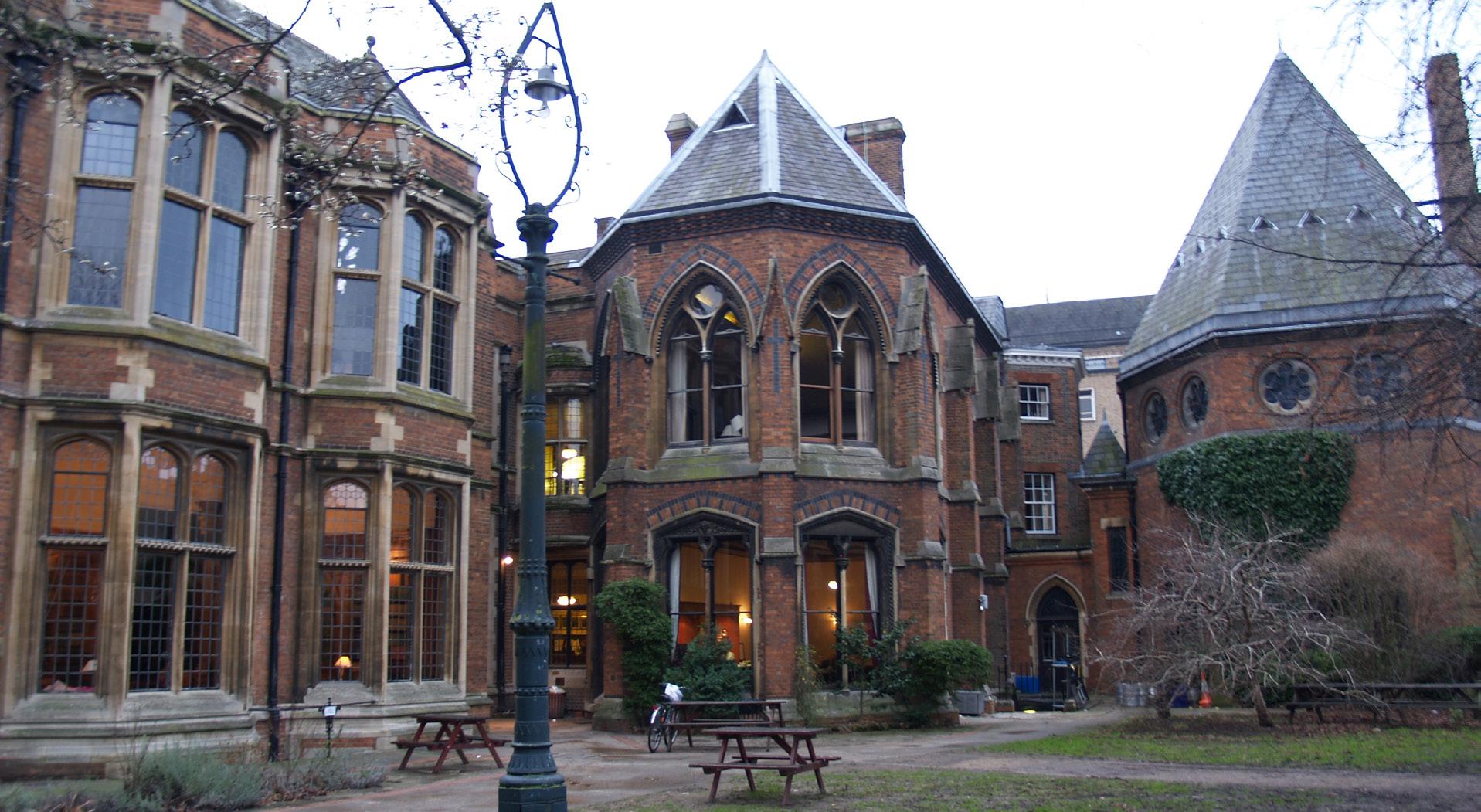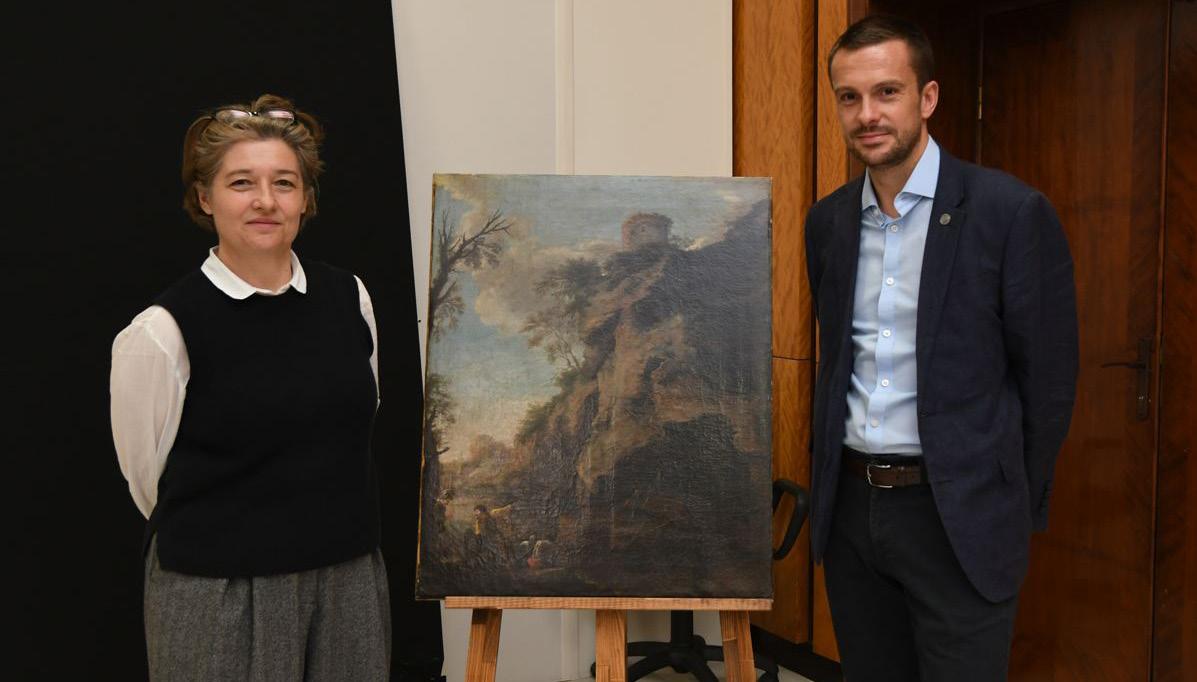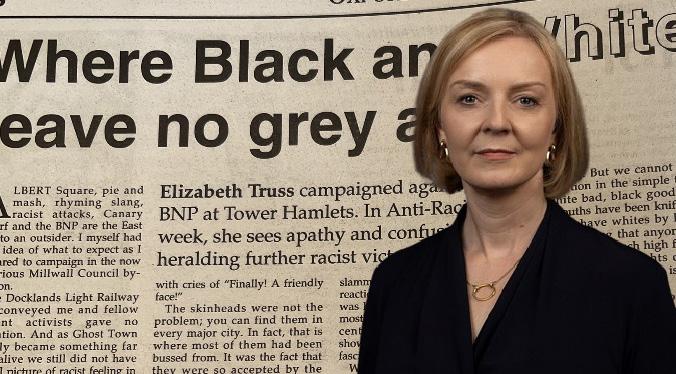





Put through the Grindr: Gay “dating” in Oxford A tale of two wheels: A dive into Oxford’s cycling culture

In the financial year 202223, the Oxford Union began a fundraising appeal to raise £5m by the end of 2025.
The Oxford Student can reveal that throughout this year, only £18,083 were fundraised, amounting to 0.36% of the initial target.
The standing of the Oxford Union’s finances, and its ability to maintain its buildings, appears to be in jeopardy following this weak fundraising effort.
The appeal started in 2022, at the occasion of the Union’s bicentenary year, was intended to ensure the integrity of its Grade II listed properties owned on St Michael’s Street.
Money raised as part of the effort would be used to carry out the necessary works to pre-
serve its buildings, including its historic debate chamber. The Oxford Student understands that the structural integrity of the library roof is at risk, and that it will need to be specifically looked at as part of the renovations.
“ The Union’s financial fragility is the clear result of a flawed governance system
— A former Union officer
However, in 2023, a year which saw the Union host celebrations for its 200-year history, including one stacked with high-profile alumni, the Union raised £18,083. The to-
tal amount of money set aside for this appeal at the end of the 22/23 year amounts to just £17,710.
The Union writes on its website that the appeal is intended to ensure it can “continue to uphold free speech by inviting members and guests to challenge ideas in a historic setting that is fit for purpose”.
A former officer at the Union commented: “The Union’s dwindling reputation and financial fragility are the clear results of a flawed governance system, where student schemes and Machiavellian moves overshadow proper management. Fundraising struggles as the Union’s image drifts from its original mission, mired more in scandal than substance, leaving oversight neglected and the building in disrepair.”
Continued on page 4.
Louis Benneyworth: Talking to the OUMS President

Gaspard Rouffin and Martin Alfonsin Larsen
The Oxford Student can reveal that the Student Union will scrap three Vice-President Sabbatical roles, half of the elected team, for the next academic year as part of its transformation plan.
The roles affected are VP Welfare, VP Equality and Liberation, and VP Activities and Community. Alfie Davis, Joel Aston, and Alisa Brown have been elected in those roles.
The posts are currently held by Rosalie Chapman, Kennedy Aliu, and Mia Clement re-
spectively. These roles are not represented in the University Council, and are instead written into the SU’s bylaws, making the change at such short notice possible.
SU President Danial Hussain wrote: “The reality is that the SU has spread itself too thin over recent years, leaving it unable to offer the right professional and personal support to Sabbatical Officers, and by association, to students.”
These are comments from a piece written in Cherwell. In that piece, Hussain announced the laying-off of multiple staff...
Continued on page 4.
The first line of the University’s Equality Policy (Approved by the Council on 16th March 2020) declares, “The University of Oxford is committed to fostering an inclusive culture which promotes equality, …” It continues later:
“The University understands inclusion to mean institutional and individual efforts and actions to foster an environment and institutional culture in
which each member feels, and is, valued, listened to and respected, able to be themselves and empowered to participate fully in the life of the University.
“The University expects all members of the University community to treat each other with respect, courtesy and consideration and does not tolerate any form of unlawful discrimination, bullying, harassment or victimisation.” The Vice-Chancellor remarks in her films...
Continued on page 10.
Wellington Square University offices. Credit: Cameron Samuel Keys
 Oxford Union building on St Michael’s street. Credit: Andrew Gainer
Gaspard Rouffin and Martin
Oxford Union building on St Michael’s street. Credit: Andrew Gainer
Gaspard Rouffin and Martin

Scan this code to receive weekly top stories and more!

Scan this code to listen to our fortnightly podcast on Spotify!



Alittle under a year ago, when I applied to join the OxStu as a section editor, I really didn’t expect to be in the position of writing this editorial. OxStu has genuinely been one of the highlights of my year at Oxford, so I would like to use this to thank all the people that have made it such a fantastic experience.
Daisy and Tara, thank you for being the dynamic duo who make OxStu so enjoyable, and for being such amazing Editors-in-Chief last term - it truly wouldn’t have been the same without you. Daisy, thank you for helping me throughout my time at the paper, and for pushing me out of my comfort zone and encouraging me to apply to new positions. Tara,

Ihad a wonderful time deputy editing Culture last term, and it’s been a pleasure reading and editing so many amazing articles and creative writing. I was also incredibly lucky to have worked
Editorial Board
Gaspard Rouffin and Martin
Alfonsin Larsen (Editors-in-Chief)
Sami Jalil and Keng Yu Lai (Associate Editors)
Daisy Outram and Tara Earley (Directors of Strategy)
Strategy
Charlie Bowden (Welfare Officer)
Sharon Chau, Amelia Gibbins, Elsie Haldane, Matt Holland (General Strategy)
Investigations
Daisy Outram and Ruby Hurst
Anandita Abraham, Yunzhang Liang (Section Editors)
thank you for always being there to chat, for your latenight editing, and for bringing good vibes to everything that you are part of.
Rose and Milo, thank you for making the Ox Stu what it is now, and for all the advice you give, both constructive or critical. You know that we owe a lot to you, so thank you for always being there when we need you.
Thank you to Sami and Keng Yu, for all the hard work you put into the newsletter and guides, for your enthusiasm and constant feedback, and for running the paper as it is. Thanks to Charlie, for your infallible OxStu knowledge and for your friendliness and positivity.
And of course, thank you to Martin, for being who you are, and for doing so much to accomplish the projects we have. I really wouldn’t want to be doing this with anyone else.
with some of the loveliest people. Thanks very much to Daisy, Tara, Martin, Sami, Jennifer, and Eleanor for their guidance and support last term, and for answering my random questions. One of the highlights of my term was definitely reviewing Yoko Ono: Music of the Mind at the Tate Modern with the brilliant Liberty, and I’m really looking forward to more of such moments!
Trinity promises sunshine, flowers, and long chats in parks as it warms up (hopeful-
News
Valida Pau (Head of News) Anandita Abraham, Audrey Davidson-Houston, Olly DeHerrera, Ruby Hurst, Gabriella Kchozyan, Rebecca Whalley (Section Editors)
Comment
Johannes Riese (Deputy Editor)
Lindsay Berat, Amelia Bryan, Yusuf Kungdol, Yunzhang Liang (Section Editors)
Zaid Magdub (Columnist)
Profile
Tallulah Hawley (Deputy Editor)
Audrey Davidson-Houston, Purav Menon, Lucy Pollock (Section Editors)

What a time these eight weeks have been. For this week’s editorial, I was initially initially planning to wax a little philosophical about this role, how cool and fun it is to be editor, but so much has happened recently I’m doing the Lady Gaga Oscar speech thank-you-so-much-to-everyone-I-can’t-stop-crying editorial I had planned for 7th week.
There are a few people without whom you would not be reading this piece of paper, and they deserve all the thanks in the world. First, to Rose and Milo, thanks for watching out for Gaspard and me, even through the most important exams of your lives. Thank
ly soon) – I’m certainly looking forward to going on picnics with my friends. For those sitting exams, all the best! Make sure you rest.
I’m incredibly excited to be Associate Editor with Sami this term, and I’m very grateful for my friends who encouraged me to apply. Make sure you’re signed up for our newsletter: Sami has some amazing plans! This term, I’ll be overseeing some sections of the paper and co-directing the podcast with Tara. I’m looking forward to contributing to the
Culture
Georgie Allan (Deputy Editor)
Sophie Harrison, Isra Khan, Yunzhang Liang,Anton March, Nikhil Singh, Rebecca Whalley, Angela Yu (Section Editors)
Elliot Francolla, Johannah Mathew (Columnists)
OxYou
Olly DeHerrera (Deputy Editor)
Ella Goodwin, Florence Purcell (Section Editors)
Identity
Elsie Haldane (Deputy Editor)
Caitlin Clarke, Georgia Ferris, Sameeha Qureshi (Section Editors)
Georgie Allan, Sharon Chau (Columnists)
you to Daisy and Tara, for keeping us grounded and always making us laugh. To the unsung heroes, Keng Yu and Sami - thank you for your willingness to critique and get so involved. To Charlie - thanks for being a font of knowledge on all things OxStu, past and present. To Cameron - the only reason any of us look as good as we do in this print is thanks to your talents. And thanks to the entire Editorial Team, who pitched in to make this print come to life and look the way it does.
The biggest thanks of all to Gaspard. How you tolerate me, my peak-of-comedy ‘when’ jokes, and my inability to send mass emails, I don’t know. I hope I’ll be as fun to be around in six weeks time. But if I’m not, at least you’ll have four stylishly redesigned print editions and a slick social media presence so you can feel better about it.
Martin Alfonsin Larsen St Catherine’s Collegepaper on a much wider scale than before.
Martin and Gaspard – who have both been extremely supportive – have inspiring and exciting plans for the OxStu, and they have worked tirelessly to bring this vision to life.
I can’t wait to read all your lovely pieces and I hope you enjoy reading this week’s edition, as much as we enjoyed putting it together.
Keng Yu Lai Regents Park CollegeSport
Haochen Wang (Deputy Editor)
Purav Menon, Johannes Riese (Section Editors)
Science
Sabine Zednik-Hammonds (Deputy Editor)
Amelia Bryan, Ava Chan, Krishh Chaturvedi, Gabriella Kchozyan, Sameeha Qureshi (Section Editors)
Creative
Rhea Brar , Elliot Francolla,Caroline Kuba, Olivia White (Illustrators)
Cameron Samuel Keys (Photographer)
Elyse Airey, Yashas Ramakrishnan (Puzzles)
news@oxfordstudent.com | Head of News: Valida Pau
Section Editors: Anandita Abraham, Audrey Davidson-Houston, Olly DeHerrera, Ruby Hurst, Gabriella Kchozyan, Linda Liu, Rebecca Whalley
The Oxford Student has gained exclusive access to a version of a report authored by SU President Danial Hussain on college disparities due to be published later this term.
It lays out an extensive vision of an Oxford rife with disparity at almost every level, from accommodation to academic performance. It makes several recommendations to address disparities, including the creation of an Endowment Fund to redistribute funds from wealthier colleges to poorer ones.
This report was Hussain’s headline measure during the SU presidential election. His manifesto put forward “An Oxford that reduces college disparities” by “compiling […] data from all colleges for negotiating efforts.”
It comes two months after Hussain returned to his role following suspension after allegedly sharing porn with SU staff. Oxford SU is also undergoing a period of significant change, with a transformation plan underway to, among other goals, create a “more responsive student representation system”.
The report finds that “there are substantial financial disparities between colleges, which have worsened with time and will continue to deteriorate unless significant action is taken.” It highlights that wealthier colleges provide more support for their students due to having larger endowments, and that these disparities lead to significant differences in student experiences.
“ Wealthier colleges provide more support for their students
The report examines the repercussions of these disparities, and the unequal support offered by colleges through various grants and scholarships. These disparities, paired with diverging accommodation offerings and rent prices, result in unequal situations between students across colleges.
The report’s recommendations consist of three significant proposals. These include the creation of an endowment fund and the creation of a committee of college disparities made up from University and College
representatives. It also proposes integrating college disparities into the Office for Students “Access and Participation Plan”.
This money would then be redistributed “proportionally” to the poorest colleges. The report’s model projects that this would have “little effect” for wealthier colleges, but that it would allow poorer colleges to improve their “financial stability”.
One issue that the report also raises is that colleges with lower financial endowments admit significantly more state-educated students than ones with bigger endowments. However, it is often these students that will require the financial assistance that wealthier colleges can more easily provide.
The report also highlights that there is a “broad correlation between college wealth and academic performance”, meaning that students from poorer colleges generally perform worse than peers from wealthier colleges on final exams.
The report states that its objective is to “ensure that no student’s experience falls below an acceptable minimum baseline”. It concludes by saying that these changes are “crucial for fostering an equitable Oxford experience”.


Oxford’s firstever student app to pilot
Gabriella Kchozyan
MyOxford, the University’s first student app, will pilot starting Trinity Term 2024. The app is set to launch in the 2024-25 academic year to enable more seamless and up-to-date access to key University and college systems services.
Undergraduate and postgraduate students from selected colleges and departments will provide feedback on the app’s design, features, and accessibility throughout the Term. The app’s development team will factor in suggestions for the app’s official launch next year.
Students can access MyOxford through a web browser or as an app on any device with their unique Single Sign On (SSO).
MyOxford will centralise the University’s systems, services, and news to enable students to quickly navigate programs and digital tools. This will include Nexus365 (including email, calendar, and OneDrive), Canvas, Search Oxford Libraries Online (SOLO), Student Self-Service, college-specific content, and the latest college and University updates.
The development of MyOxford comes as part of Oxford’s
Digital Transformation programme. The programme seeks to modernise and update the University’s culture and digital environment. By developing IT systems and new apps, alongside other initiatives, the programme aims to improve all University members’ digital experiences and capabilities.
“ MyOxford will centralise the University’s systems, services, and news
Many students have previously faced numerous challenges when navigating and using the University’s systems and services.
One student said: “I often get frustrated with the number of different links and sites that I have to access regularly to navgiate my academic experience. The prospect of a streamlined app sounds really exciting to me, and something that should have been done a long time ago.”
The MyOxford app marks a significant effort to enhance the student digital experience at the University.

Oxford awarded £9m for cancer treatment research - Linda Liu
Cancer Research UK (CRUK) will award £9 million in funding to the University over the next five years to train early-career clinician-scientists.
74% of the CRUK’s staff had said “it has become harder to deliver research in a timely manner in the last 18 months.”
The programme will provide flexible training alongside mentorship and networking opportunities to better support physicians who would stay involved in cancer research.
The University will produce a new meningitis-B (Men-B) vaccine in partnership with the Serum Institute of India (SIIPL), the world’s largest vaccine manufacturer, after reaching a landmark Licence of Technology Agreement.
The Oxford-SIIPL partnership will deliver lifesaving protection against Men-B by producing a first-of-itskind quadrivalent vaccine.
Oxford City Council’s workforce quality is at ‘significant risk,’ report finds - Rebecca Whalley
Oxford City Council faced a ‘significant risk’ of workforce equality over concerns about its high level of staff turnover, according to a recent report.
The Council’s staff turnover has increased by 15.29% over the past 12 months and 27% of staff absences between January 2023 to 2024 were due to stress and depression.
Continued from page 1.
The Union’s long-term funds are buoyed from three main sources. One is income from a £1m trust fund set up by the Mitsubishi UFJ Trust and Banking Corporation in 1988.
The Union received £23,677 from it in 2023.
The second source of its income is rent on its investment property in Frewin Court, amounting to £29,084 in 2023.
The third source is income from hire fees from rentals to third parties, which amounted to £13,552.
The Union ended the 22/23 year with approximately £800,000 in total funds. Approximately £452,489 is held in assets attributable to an unrestricted fund, with £215,072 available in restricted funds.
This figure also includes its investment property at current value.
This is not the first time in recent memory that the stability of the Union’s finances have been called into question.
In 2023, amid a national controversy surrounding the Union’s invitation of prominent gender critical feminist Kathleen Stock to speak at the Union, the Oxford University Student Union cut ties with the Oxford Union. This meant that it would not be able to hold a stall at the University Freshers’ Fair.
At the time, the Union made over a third of its annual income from its membership drive in the 2022 freshers’ fair. However, the decision was effectively overturned after the University informed the SU that they would recognise the Union as a student society, allowing it to sell memberships.
The Oxford Student revealed that the Union made just un-
der £600,000 from new memberships, which accounted for a significant portion of annual income.
“ This is not the first time in recent memory that the stability of the Union’s finances have been called into question.
The Cambridge Union recently hiked membership prices from £230 to £300 amid what was described as “financial pressures”. Varsity reported that this was a result of poor financial decision making
which made it harder to “complete infrastructural repairs”.
The Oxford Union commented: “The Oxford Literary and Debating Union Charitable Trust (OLDUT) is a registered charity which, since 1975, has owned most of the buildings used by the student-run Oxford Union Society (OUS), including the libraries and debating chamber. Given its charitable status, OLDUT is able to claim gift aid on donations it receives that are eligible. OLDUT has published its annual accounts for the financial year ended 30th June 2023. The figures captured therefore do not reflect donations or pledges received since this date. More information on OLDUT and its trustees, none of whom are remunerated, can be found on the Charity Commission website (registered charity no. 270292).”
Continued from page 1.
members, including sabbatical officers that were elected by the student body.
On a social media post by Cherwell announcing the piece by Hussain, a former SU sabbatical officer wrote:
“[Because] of this review several real people lost their jobs during a cost of living crisis! [Really], really good people who made helping university students their livelihood. [The] work they put in, mostly behind the scenes, was far from “ineffective” – but instead of creating infrastructure to better effectively communicate this work, they now will not be doing it.”
This team reduction and the transformation plan has been announced amid “increasing concerns about the SU’s ability to operate and represent the student body effectively”.
The SU has been troubled by numerous scandals this year.
These include the porn scandal surrounding SU President
Danial Hussain revealed by journalists from The Oxford Student, the chair of Student Council resigning in protest against the SU’s “disregard for democratic principles”, the SU blocking a motion of no confidence in the SU President, and questions over the efficiency of sabbatical officers more generally.
In a comment to The Oxford Student, the Oxford SU stated: “The Students’ Union has put in place a Transformation Plan aimed at revolutionising our operational practices to better serve our student body. Working with our colleagues at Oxford University and the Students’ Union’s trustees, this plan has already prompted us to reevaluate our approach to ensure we are setting the foundation to provide the most effective student representation we can.
A pivotal aspect of this restructuring involves a difficult yet necessary decision:
reducing the number of sabbatical officers by half in the coming year. This measure is not a reflection on the capabilities or performance of any individual officer. The Sabbatical Officers taking up post in the academic year 2024/25 are those identified in the University regulations as the student representatives on University Council: President, VP UG Education and Access and VP PG Education and Access.
We are navigating these
changes with the future in mind, committed to building a Students’ Union that delivers an effective and representative structure, and one which will offer the best support and training to our Sabbatical Officers, who do an incredibly important job. We appreciate the understanding and support of the student body as we embark on this journey of reform.”
Alfie Davis, Joel Aston, and Alisa Brown have been approached for comment.

Aleaked email from the University of Oxford has revealed that “members of legislatures or those active in politics” will be barred from running for Oxford University chancellor, possibly disqualifying Boris Johnson and Theresa May as speculated candidates.
Oxford’s current Chancellor, Lord Christopher Patten, announced in February that he will be stepping down after 21 years of service.
After his announcement, it has been speculated that former Prime Ministers Tony Blair, Theresa May, Boris Johnson and Imran Khan, the jailed former Prime Minister of Pakistan, may take up Lord Patten’s role.
This also follows the University’s new nomination process announced in March. Previously, a nomination by at least
50 members of the University was the basic requirement to stand for the position of Chancellor. Now, potential candidates for the position will need approval from a panel of selected internal University representatives.
The latest announcement signals a major shift in what Oxford may consider a desirable Chancellor for the current era. Since the 15th Century, the position of Chancellor has near-consistently been held by a Statesman, such as Oliver Cromwell and Harold Macmillan who served as Prime Minister and Chancellor simultaneously.
The University’s most recent chancellors have been active politicians. Lord Patten served as European Commissioner for External Relations from 1999-2004. Roy Jenkins, Lord Pattern’s predecessor, had active political stints as Home Secretary and President of the
European Commission.
The change has since sparked criticism. Prime Minister Rishi Sunak, a Lincoln College PPE graduate, warned that this new electoral process was “divisive”.
Neil O’Brian, the former Secretary of State for levelling up wrote on his website: “The university seems intent on imposing an eastern [European] bloc-style ‘managed democracy’.”
The Times has accused the University’s electoral change as a way to “secure [a] woke chancellor.” In a letter to The Times, Oxford’s current Vice-Chancellor, Irene Tracey, insisted the University had not “gone woke”, and stated these new measures “will only be ensuring those who are put forward to the vote are eligible; there will be no sifting of suitability”.
In response to the leak, the University later confirmed

that the new rules are intended to apply to individuals who “are expected or aiming to be an elected member of a legislature during their term as our next chancellor”.
This will disqualify House
of Commons members, but not House of Lords members, which is an unelected body. The University confirmed that further details on these new criteria will be published in due course.

Johannes Riese
isthe Comment
Deputy Editor at The Oxford Student.After 21 years in service, the current Chancellor, Lord Christopher Patton announced he will be stepping down at the end of the year. Since then, the University has made changes to the nomination process. Previously, a nomination by at least 50 members of the University was the basic requirement to stand for the position of Chancellor. Now, potential candidates will need approval from a panel of selected internal University representatives. If two or more candidates receive approval, an online vote will take place, during which members of the Convocation, mostly comprised of all former alumni, will be eligible to vote. The rule changes have been decried by politicians and the media. Current Prime Minister Rishi Sunak, warning that this election process is “di-
visive”, and former Secretary of State for levelling up Neil O’Brian compared the changes to an “eastern [European] bloc-style ‘managed democracy’.” The Times even accused the University of committing a woke “stitch-up”.
The derision of the changes appears heavy-handed as the elections for Chancellor have never been the most democratic. During the last two elections, the votes had to be cast in person, so the turnout did not exceed 9,000, which should likely be shattered with online voting.
The internal pre-screening process can also be compared to political parties choosing their own leaders. In most democracies, voters do not get to pick the nominees for the highest office, unlike the United States. Instead, they choose among the elected party leaders. A charitable in-
terpretation may assume that the pre-screening even eliminates the risk of unserious candidates acting as spoilers in an online election.
A couple of weeks ago, a leaked email revealed that members of “legislatures or those active in politics” will be barred from running for the chancellorship.
Indeed, the four most recent Chancellors were active politicians when they were elected. Lord Patten was a European commissioner; his predecessor Roy Jenkins was an MP; Harold Macmillan was still prime minister, and Lord Halifax served as education secretary.
As the Chancellor is the titular head of the University, it is mostly a ceremonial and ambassadorial role which includes advocacy, advisory and fundraising work. These duties would not necessarily
appear conflictual with the responsibilities of a senior politician in their twilight years, but maybe the University simply wishes to avoid any risk of the perception of impropriety. Ironically, the decision to impose a ban on active politicians may have inadvertently triggered suspicions of foul play.
In practice, the rule should have little impact on who is elected Chancellor. Traditionally, the role has been reserved for senior politicians like prime ministers, foreign secretaries, and European commissioners. Under the current rules, two of the speculative frontrunners, Boris Johnson and Theresa May, would not be prohibited from seeking the office as neither is expected to be an MP following the next general election. All the fuss seems to be much ado about nothing.

Daisy Outram, Editor-in-Chief in Hilary Term 2024, won Highly Commended for the Best Newcomer Award (Rising Star) at the Student Publication Association (SPA) National Conference.
David Chipakupaku, journalist and producer at Sky News, praised Daisy for her strong copy and clear dedication to The Oxford Student.
OxStu journalists also won at the regional level. The Oxford Student’s Rose Henderson and Milo Dennison jointly won Best Journalist of the Southeast, and were nominated for Best Investigation for reporting on the Oxford SU president.
The Oxford Student was also nominated for Best Overall Digital Media, and Best Project or Initative.
Credit: SPA
Oxford dons have voiced their concerns over political diversity and free speech within the university following a post by Vernal Scott, the head of Oxford’s Equality and Diversity Unit (EDU).
Vernal Scott’s now-deleted post on X supported an attempt by Belgian police to shut down the National Conservative Conference held in Brussels last week. Scott wrote: “I applaud the mayor and police of Brussels for their decision to close down this conference”.
Belgian police stormed the conference under orders from Emir Kir, the Socialist Party mayor of the neighbourhood hosting NatCon. Kir defended his order as a means to ‘‘guar antee public safety’’ but added, “the far-right is not welcome” in his district.
Kir’s order to suppress the meeting was quickly deemed
unlawful by both the Belgian prime minister Alexander de Croo and the Belgium’s supreme administrative court. De Croo asserted, “Banning political meetings is unconstitutional. Full stop.”
Scott’s remarks seem to have struck a chord within the debate around free speech.
In a comment to The Telegraph, Professor Lawrence Goldman, an emeritus fellow at St Peter’s, criticised Vernal Scott for not understanding “the meaning of his job title”.
“Vernal Scott’s comment sums up the problem of our universities, which have focused on in creasing
away,” he stated.
The Telegraph also reported that Sir Noel Malcolm, a senior research fellow at All Souls, called the post “troubling” and contradicts what he calls “diversity of opinion”.
Vernal Scott’s actions come amid attempts by the government and academics to preserve free speech and academic freedom as they see fit.
In 2023, the government passed the Higher Education (Freedom of Speech) Act and appointed Arif Ahmed, a former philosophy professor at the University of Cambridge, as the first free speech tsar.

Ahmed has repeatedly emphasised the supposed threat of equality and diversity legislation on free speech.
Last year, a group of academics joined forces to form the London Universities’ Council for Academic Freedom. The LUCAF defines academic freedom as that which ‘‘safeguards the pursuit
of knowledge and truth, which is central to the mission of higher education” and “underpins the ability of scholars to deliver knowledge as a public good in a democracy”.
“ Vernal Scott’s comment sums up the problem of our universities... increasing social diversity while allowing intellectual and political diversity to wither away
— Prof. Lawrence Goldman
In their policy statement, the University of Oxford labels free speech as the “lifeblood of a university”. They put for-
ward the view that a university “should never prevent speech that is lawful”, which inevitably means “members of the University are confronted with views that some find unsettling, extreme or offensive”.
Whilst they accept “not all theories deserve equal respect”, the University argues that “within the bounds set by law, all voices or views which any member of our community considers relevant should be given the chance of a hearing”.
The University has isolated itself from Scott’s views.
“The University of Oxford has a robust freedom of speech policy that applies within the university context stating that all lawful voices or views should be given a hearing. These views were expressed by a member of staff but in their personal capacity about a non-university event and do not represent the views of the University,” said a spokesperson of the University.
A17th-century painting stolen from Christ Church Picture Gallery in 2020 has been returned after being recovered in Romania.
‘A Rocky Coast’, with ‘Solders Studying a Plan’, was painted by Italian painter Salvator Rosa, who is renowned for his dark Baroque style.
Two other artworks, Sir Anthony van Dyck’s ‘A Soldier on Horseback’ and ‘A Boy Drinking’ by Annibale Carracci, were also taken during the raid and remain missing.
The three artworks, stolen late on March 14 2020, are estimated to be worth a combined £10 million according to Eurojust, the European Union Agency for Criminal Cooperation.
The gallery’s curator, Jacqueline Thalman, argues that the
paintings’ importance transcends financial value. “Their significance to our British and European culture is inestimable”, explained Thalman.“The missing paintings have been on public view since 1768, so it’s vital that we recover them so they can be enjoyed and studied by all once more”.
The Rosa painting was recovered after the man in possession of it turned himself in to the Romanian police. According to a recent statement by Thames Valley Police, the man has not been arrested and is being treated as a witness.
Thames Valley police further revealed that they have successfully “harvested a large amount of forensic material” from the painting, which is hoped to be of assistance in tracking the remaining paintings.
Detectives continued to call for the return of the remaining

two missing artworks:
“From information provided by Romanian authorities, we know that these two paintings were sold on in Romania but now could be anywhere in Europe,” said James Mather, a detective chief inspector with the Thames Valley Police. This is not the first art heist at one of Oxford University’s galleries. In 2000, a Cézanne work worth around £3 million was stolen from the Ash-
molean Museum and has remained missing since.
The returned Rosa painting is now on display in the Christ Church Picture Gallery.
The gallery continues to leave empty the frames of the other two paintings, accompanied by a label reading.
“The empty frame remains hanging in the Picture Gallery as a placeholder for the stolen painting and as a symbol of hope for their return”.

Faculty of Philosophy as the reason behind its closure.
The Future of Humanity Institute (FHI) was shut down by the Faculty of Philosophy on April 16 after nineteen years of operation.
The Institute was founded in 2005 and was run by Swedish-born philosopher Nick Bostrom, known for popularizing the theory that the humanity may be living in a simulation.
The Institute cites “administrative headwinds” from the
“Eventually a pressure to conform began bearing down (we were administratively housed within the faculty of philosophy, even though the majority of our research team by this time were non-philosophers), and there was a death by bureaucracy,” said Bostrom, in an emailed statement to The Guardian.
Anders Sandberg, a former Senior Research Fellow at the FHI, claimed the Institute
were “affected by a gradual suffocation by Faculty bureaucracy.” The Faculty imposed a freeze on fundraising and hiring in 2020, and decided not to renew the contracts of staff in late 2023, according to the Institute’s final report.
“ Eventually a pressure to conform began bearing down and there was a death by bureaucracy
— Nick Bostrom
The Institute was dedicated to ‘studying big picture questions for human civilisation’ such as existential risk, anthropic reasoning. It was closely aligned with effective altruism communities, and received £1m of funding from Tesla CEO Elon Musk in 2015 to research the
Valida Pau
Cherwell District Council and Oxfordshire County Council have been instructed to pay Merton College’s appeal costs after an inspector deemed they acted unreasonably over a planning application.
In July 2021, Merton College applied to build 540 homes on farmland to the west and north of Yarnton village, alongside a community work hub, a local natural reserve and an elderly care space.
The plan was part of the 4,400 new homes allocated by the Cherwell District Council in Kidlington, Yarnton, and Begbroke to meet housing needs.
threat of Artificial Intelligence.
The FHI website stated that research in the fields where FHI was active may continue to be pursued elsewhere. The Institute’s largest team, the Governance of AI Program, became an independent organisation after “spinning out of the university in 2021 to escape bureaucratic restrictions.”
Bostrom has resigned from the University following the institute’s closure.
“We regularly consider the best structures for conducting our academic research, as part of the University’s governance processes. After such consideration, the decision was made to close the Future of Humanity Institute. The University recognises the Institute’s important contribution to this emerging field, which researchers elsewhere across the University are likely to continue,” said an Oxford spokesperson.
In September 2023, Merton College appealed after the Cherwell District Council failed to make a decision. On November 2, the Council’s Planning Committee rejected the application, citing flood risks.
Robert Davis, a representative of Merton College, said at the November meeting that “It is not the responsibility of any applicant to address pre-existing issues.”
Planning inspector Jonathan Bore said the development would provide “much-needed homes” to meet the city’s needs and that the councils behaved and handled the application unreasonably.
He also found Cherwell Council showed a “slowness and lack of engagement” and its action has caused the College “unnecessary or wasted expense.”
The exact costs will be settled at a later date. fordshire County Council spokesperson said: “The county council is currently considering the inspector’s decisions.”










Nominate yourself for the Oxford SU Campaign By-Elections!





You have until May 3rd to put your name forward to become a leader for one of the ten student-led campaigns!







Seven months ago, Tory spin doctors coined a new strategy called “let Rishi be Rishi” in the hope that the prime minister would finally embark on policy changes that he genuinely believed in. An example can be seen in last week’s smoking ban, which would prohibit the sale of cigarettes for anyone born after 2009. It passed its first reading.
With the Conservatives trailing Labour by 20 points in the polls, journalists have begun writing the obituary of Sunak’s premiership, and the smoking ban may define his legacy. He displayed an uncharacteristic level of courage by allowing a free vote and permitting the right wing of the party, led by Liz Truss, to rant and rave against the bill without success. He can claim victory by cracking down on the single most preventable cause of death in the UK.
This endeavour should serve as a reminder to Labour that substantive change is not always a victim of fiscal prudence. The first question politicians rightly face when proposing radical policy changes is how they will finance them. Starmer used it as an excuse to abandon his signature £28 billion green pledge. This is why Rachel Reeves stated that Labour is committed to the same debt target as the current government, restricting capital spending unless taxes are raised
or spending is cut. Labour’s caution may secure them the largest possible majority, but without a clear vision for the country, they will lack a legitimate mandate for enacting the fundamental societal change they desire. The dire economic situation means they cannot simply more to enhance public services. Therefore, they should use the smoking ban as a blueprint to find policies that do not solely hinge on banknotes.
“ Substantive change is not always a victim of fiscal prudence
There are many salient policy
the last one back in 1999 to reform the House of Lords. Such a move would signal to voters that Labour is the party of national unity, setting aside their political grievances to find the best solutions for the top issue for many voters.
The proponents of Labour’s current strategy might argue that they should not take victory for granted and that proposing more concrete policies introduces unnecessary risk. As the election approaches, the polls will likely narrow, but Labour’s lead should be unassailable. The parliament will almost complete its five-year term. In the extremely unlikely scenario where Labour fails to gain a majority, they would almost certainly form a minority government with the backing of the
weaknesses. These numbers suggest that Labour’s lead has everything to do with hatred for the Conservatives rather than genuine passion for Labour.
“ Starmer should find his inner Thatcher and channel her
Nothing suggests that the Conservatives are getting their act together. The constant headlines of plotting to unseat Sunak demonstrate disunity and show that MPs are positioning themselves for a future post-election leadership contest. They are losing voters to Reform and Labour. Sunak’s bet that an im-

1979, Margaret Thatcher won the election with an anti-union and anti-inflation platform, allowing her to reshape the British economy. Then there is the 1997 election where Labour ended 18 years of Conservative rule. New Labour under Blair is one of the greatest modern political rebrandings. Starmer may lack Blair’s charisma and popularity, yet New Labour still campaigned on a platform of substantive change with policy initiatives like devolution. Starmer even recently praised Thatcher for effecting “meaningful change”, so he should find his inner Thatcher and channel her. A stagnating economy ridden with inflation did not stop her. If even Sunak can, for once, ‘be Rishi’ and put aside his natural tech- nocratic so must erwise, able the his

hend the matters debated?

Continued from page 1. ...and open meetings how she meets everyone, dining and visiting her way around the city. Presumably, we are seen to be ‘One Big Happy University’. Indeed, the 2023 Staff Survey asked us to rate the statement: “I am proud to say I work for the University.” So just how ‘included’ and ‘equal’ are the support staff?
“
Not once did any of the Vice-Chancellors visit my colleagues
Congregation is the supreme body of the University, governing by consensus. All staff at the Grade 8 salary scale and above are eligible for membership (with caveats). What is deemed wrong with staff on Grades 1 to 7? Is our work of less value? What insight into our work do such high-grade staff have that is superior to our own? Do we lack the mental capacity to compre-
As somebody who worked with some peers who have four degrees plus professional qualifications and were more qualified than our managers, I highly doubt this. OUSU students may be called to speak by the Chair, but support staff are not even permitted to observe (Congregation Regulations 2 of 2002).
In more than twenty years as a Grade 3 employee, not once did any of the Vice-Chancellors visit my colleagues and me. The residents of Wellington Square never bothered to make themselves acquainted with our concerns. During a period of major changes in my department, the only people enquiring about the support staff’s welfare were external academics. The manage ment style was ex plained by a boss:
tion’s ‘agreement by consensus’ reaches only so far down the organisation.
“ There are those paid to decide, and those to implement.
Perhaps I have never dined with the Vice-Chancellor or those close to her or him because I have never been invited to a College — those forbidding, sepulchral, stone fortresses we trudge past in the rain from the bus stop every morning. There was an article many years ago in the Oxford Magazine touching upon ‘loyalty’. The low-
never being introduced, and the relationship being wholly professional. Or another who ignored my request to await the arrival of my manager to arbitrate on a policy she was disobeying, continued to do as she desired, and then tried to tell me she had not understood the unambiguous sentence: “Would you wait until [my boss] returns at 11.00, please.” In my experience, apologies for such behaviour are never received nor sanctions imposed.
Then there are the unquestioned manifestations of the ‘Higher/Lower Orders’ arrangement: two pension schemes, two trade-union negotiating committees; management-only committees, semi-formal WhatsApp groups, research grant eli-
the volcano under the Ey jafjallajökull glacier.
“ The whole organisation is built upon nurturing inequality
“There are those paid to decide, and those
to implement.”
The consultation on changes consisted of a ‘choice’: take it or leave it. Congrega

But what of all those unsolicited e-mails promising exciting lectures, previews of exhibitions, book launches, and news of ‘Our University’? How many support staff are permitted extended lunch hours for “mindgrowing” (sic )? Are events after work attended by anyone who has to commute for four hours each day because they cannot afford to live in Oxford? Or are such events effectively ignored by support staff because they are deemed irrelevant by their agers, or no time off in lieu or over-time is granted? Are such absences not noticed and questioned by the organisers? Why has

corrected over the years? I ask all these questions because I have not found the answers on the relevant University and colleges’ websites. For the last eight years, the University has conducted a biennial staff survey, for which it should be commended.
However, the results of the 2023 survey are still to be released fully, which makes me wonder if the opinions expressed above and others have been made more volubly, to some embarrassment. I hope so. But I am not expecting improvement; I have seen none since the first survey.
The Equality & Diversity Unit was created before 2009 from a merger of prior departments and units across the University, and it is advised by a panel of twenty-four members, none of whom are on support staff grades. A Chief Diversity Officer, Professor Tim Soutphommasane, an ex-Oxford student, was appointed in

Zaid Magdub is a first year Law student at Regent’s Park College. He argues that the Labour Party’s stance on Gaza risks alienating its core constituencies.
January 2023. (My colleagues and I have not met him either.) Perhaps he will lead a
“ If on a senior grade salary, one may work from home. If not, one loses a day’s annual leave or pay, owing to rail strikes, bad weather, or even the volcano under the Eyjafjallajokull glacier
dismantling of the University and Colleges’ structures of inequality, but I doubt the privileged will yield their advan-
Too much has been said about Keir Starmer, Teddy Hall alumnus and former Trotskyist, who recently stated that he “had a good time as a student” when asked whether he had taken drugs as a lawyer. I often find myself needing a good time as a student to get through anything Keir Starmer says, although I am sympathetic to consuming narcotics when near Teddy Hall. With Labour so dominant in the polls, one can expect Starmer to return to a feeling similar to the substance-induced euphoria of his student days.
Starmer’s tenure resembles the Labour Party he would have rejected as a student, one headed by a leadership set on defining itself against a brief period of dominance from the party’s left wing that resulted in a humiliating defeat. A defeat that the new leadership is zealously inclined not to repeat, curtailing the left completely. Nevertheless, one should not stress the parallels too much – 1983 and 2019 were very different elections. Labour’s performance in the latter has been subject to an endless number of post-mortems;
tages quickly or willingly. Not having worked in every part of the University, I am certain to have omitted plenty more egregious examples of inequality, but interested readers need only ask support staff colleagues of more than a few years’ service for their experiences. After twenty-two years of employment in the University, the sense of entitlement of some staff is more than a myth and the whole organisation of the University and Colleges is built upon nurturing inequality. At best ignored, at worst abused with impunity, support staff take little comfort from high-sounding documents, policies, committees, and panels. Subject to governance by academics, the latter’s complicity and actions belie the egalitarian and inclusive policies they purport to endorse and uphold. A massive change in attitudes and behaviour by those at the top is required.
some regurgitating the myth of faceless hordes of working class ‘Red Wall’ Northerners abandoning Labour, others not so zealous. Regardless, it did seem clear that Labour had consolidated their BAME voter base. All those surnames that your substitute teacher couldn’t pronounce would gravitate towards the red flag.
October 7 has changed that. Starmer’s position on Gaza seems to have driven the wedge even Iraq couldn’t. Rather fitting that Labour’s prospects should be hampered by tragedy in the Middle East, the party’s imperial legacy is long-doc ument ed – Iraq, Malay, and Korea – but it has rare ly impacted the party so deeply. But as Gaza crumbles un der Israeli fire, BAME voters have never seemed to

be as alienated from Labour. Already alienated from ‘Britishnesses,’ their sympathies
“ Starmer’s tenure resembles the Labour Party he would have rejected as a student
extend to the international, to those they know will not alienate them. The electoral pened but the first tremors were dale where pealed to tionalism and servatism of ghettoised South Asian
the Palestinian question - increasingly splinters between those who see it as another ‘Woke’ affair, and those who back the weekly marches in London. In America, the Ivy League-rearing grounds of the liberal bourgeois are set aflame with student protests, congressional hearings and NYPD raids, increasingly challenging the Zionist orthodoxy of the Republican and Democrat parties.
The activist fervour that we see in Colombia, or on Oxford Circus will wain; minorities are still minorities, England won’t be flipped in Birmingham alone; the Presidential election will not be fought solely in Dearborn, Michigan (also known as ‘Little Baghdad’). But in this environment, a new party system could crystallise. Corbyn and Sanders were moulded in the student uprisings of the sixties. Starmer himself is a product of a Britain that has submitted to Thatcherism.
On the other trum, the British public - once agnostic to

The Post-Starmer era will be a lot more radical for Anglo-America. Enjoy the good times as a student, history shifts quite subtly beneath our feet.


Audrey
Davidson-Houston speaks with Martin Alfonsin Larsen and Gaspard Rouffin about the upcoming OxStu term. of the week
Audrey Davidson-Houston :
We are all really excited for the term ahead and to find out what’s in store for the paper this Trinity term. What were the steps that brought you to this position? How did you discover your interest in journalism, and why Editor-in-Chief now?
Martin Alfonsin Larsen : This is now my fifth term on the paper in a senior capacity. I’ve done almost half of the sections including Culture, News, Features and Profile, and I’ve really enjoyed being at the OxStu so far. I’ve seen a lot of people come and go; a lot of ideas that have been implemented really well. I’m just excited to be able to impart like some of the things
that I’ve learned over time.
I discovered my interest in the OxStu through an OxYou article, because I knew someone who had edited it. I’d read some of the articles I thought they were really funny. There was this one article on the ‘Diary of an Oxford Student’, and it was so silly and so riotous, I just thought, “I have to join this paper”.
On discovering my interest in journalism: when I was in secondary school, I started reading The Guardian , pretty obsessively – so that was probably my main inspiration. I really got into UK politics around the time of Brexit, and The Guardian was my main source of information. Over time, I got more inter-
ested in journalism in the US and long-form essays as well.
Gaspard Rouffin : I applied to join the paper last Trinity, in my first year, and then joined in Michaelmas as a section editor for News and Green. Then last term I was Head of News and now this term Editor-in-Chief. Next year is my year abroad, so this really came at the perfect time for me. When I applied, I just wanted to try it alongside a few other things, and I ended up really enjoying it so I stuck with it.
ADH : So that our readers can get to know you beyond the paper, what are your main interests and hobbies outside of the OxStu?
GR : I like reading and lis-
tening to music. I’m also a big romcom fan, as well as watching F1 on my Sunday mornings. I also enjoy going on runs. Last term I got into breadmaking, especially focaccias. Other than that, I also like taking photos and travelling.
MAL : I love to game, run and read occasionally. Honestly, I spend a lot of my time at Oxford doing journalism – probably too much, according to my tutors. I think if I’d spent as much time on my degree as I have on InDesign, I would have graduated already.
ADH : So back to journalism, what or who are your main inspirations?
MAL : I’d say like the first
time I really got engaged with a piece of journalism was when The New York Times story and the New Yorker story about Harvey Weinstein came out, that felt like such a moment. It was this one story that has changed workplace dynamics and culture all over the world; that was really inspirational to me. I’ve been a longtime fan of The Atlantic , I really love their long-form essays. I really admire Marina Hyde and John Crace, I think they’re so funny. If I could write 1/10 of the stuff that Marina Hyde has written, I’d consider that a job well done.
GR : I grew up in France, so a lot of my inspirations are French journalism, such as Le Monde , Libération and
Mediapart . In terms of English-speaking media, the Vox media company, and their podcasts and YouTube videos. They do investigations and explanatory journalism, which is cool. I also enjoy the Amy Westervelt Podcast, which is about free speech, climate change and investigates the narrative around big companies in the industry and media.
ADH : From these inspirations or elsewhere, what style are you hoping to bring to the
paper this term?
MAL : We have spent a lot of time on the redesign. We want to make sure that the paper is sleek and professional, but also maintains a student identity as much as possible. So, for that we looked at a lot of our fellow student papers, as well as national ones. As far as the social media redesign, we’ve tried to professionalize it and make it as varied and interesting as possible. One of the most important things in today’s media climate is
that you have to understand where people are, not where you want them to be, and you have to try and meet them on social media.
GR : In terms of inspirations, our biggest is probably Varsity from Cambridge University. We have also looked at Epigram from Bristol, The Student from Edinburgh and The Gaudie as well.
ADH : Finally, what is your advice for someone considering joining student journalism?
GR : Go for it. Even if you have your doubts, whether it’s the OxStu , Cherwell or The Oxford Blue , if you think you’d be interested in writing an article, just write it and send it to someone. Once you’ve done it, you’ll realize it’s not scary but something that you will end up really enjoying. Even if it is just one article, you can put it on the Facebook contributors’ group.
MAL : I always say that any student could be a student
journalist. Everyone has a perspective to offer. It’s just about writing something and getting it out there, see what the response is and how you feel about it. With time, you can get more involved in editorial structures and closer to the kind of journalism you want to produce. Ultimately, Gaspard and I are students like everyone else. If we can do it, you definitely can.
To read the full interview, go to oxfordstudent.com.
Lsity Music Society (OUMS). OUMS is the home of many central university ensembles, and offers a mix of auditioned and non-auditioned ensem bles as well as a weekly news letter, a music journal ( with interviews and reviews of concerts, and social events.
Benneyworth is in his first year studying Music at St Catherine’s Col lege. He plays the oboe pri marily alongside the saxophone piano, and his main cological interests lie in con ducting, ethnomusicology, and composing.
Sami Jalil on your election as President. Tell us a bit more about your self: what sorts of music do you like to play and listen to, and what do you like to do outside of OUMS and your degree?
Louis Benneyworth you! In all honesty, I don’t think I’ve really decided what ‘kind’ of musician I’d like to be yet (if there even is such a thing!). I absolutely love orchestral music, especially sitting in the 2nd Oboe or Cor Anglais chair and being such a big component of the harmony, whilst being inspired by everyone around me. At the same time, I love playing jazz sax with my friends in college, and (although I don’t get to do

society, we must engage with the university much more directly.
To begin with, I was hesitant to apply because it’s such a huge thing to do, but in the end, I realised that it presents such an opportunity to work directly with the art form that I love, and to be surrounded by people who inspire me. I am
me, this was conducting, and the opportunity to work with OUSE on a weekly basis (I am not a string player) has been so rewarding and has made me a more rounded person and musi cian. Ultimately, I just love going to a rehears al, having a laugh with friends, playing amazing
music, working constructively, and enjoying the social life that comes with musicianship. Doing anything musical can be stressful, but I think that OUMS cultivates a good support network, and I really feel that I can enjoy music for what it is when I’m a part of the society. : Is there anything you think needs to change to improve OUMS as a whole?
sense of community is indeed fab, but I’d love to see this extended to more people.
“ I am passionate about widening access to music.
Our musical remit at the moment, excluding the affiliatedited, although changes aretion, and if we can increase this remit, then I hope that we can support more musicians. OUMS must, fundamentally, change with the times and the interests of those studying inder to be the university music society, we must engage withrectly, and therefore engage
Read the full OUMS article at oxfordstudent.com. For more information on OUMS, reach out to Benneyworth at



Within minutes of arriving in Oxford, whether that be by car or public transport, it is impossible to ignore the presence of cyclists. The area outside the train station immediately comes to my mind – the bike rails are always drowning in a sea of wheels and padlocks. For some disgruntled motorists, it can seem like there is no escaping these bicycles on the roads.
Recent figures show just how popular cycling is as a mode of transport in Oxford. According to the 2021 census, nearly one fifth of Oxford residents over the age of 16 prefer to commute on a bicycle, and Sport England data shows that 59 percent rode a cycle in the last year. Oxford’s cycling population was beaten only by long-time academic rival Cambridge (in statistics that
sadly mirror the two cities’ Boat Race performances).
With efforts to cut carbon emissions and the city’s natural flat layout, it is no surprise that Oxford is labelled a ‘cycling city.’ So why are so many residents using bicycles to get around? What makes Oxford different from other UK cities?
“ Many in the cycling community are amused by the claims that Oxford is a cycling city – it’s somewhat of an oxymoron!
Oxford is, of course, home to an extremely high number of students who are discouraged
they greenlit a £106,000 investment which will aim to improve cycle links between Oxford centre and its neighbouring areas and towns. This project is long overdue, having been postponed due to the pandemic. By enforcing zero emission zones and dedicating funds to cycling infrastructure, it seems Oxford City Council is keen to push the notion of Oxford as a ‘cycling city.’ However, much more needs to be done before this title is truly earned.
Whilst the council are beginning to act, certain restrictions still prevent Oxford from reaching its full potential as a cyclist safe haven. The sheer amount of traffic in the city centre is daunting for many, especially considering the lack of designated cycle lanes on numerous busy roads. Oxford’s public transport links are above average in the country, however the high frequency of buses on roads like Cowley Road and Magdalen Street can cause chaos.
HGV drivers to receive ‘urban training’ before driving around city centres, as well as high quality cycle lanes.
Dave Nash of the Oxford Cycling Club admitted there had been huge improvements recently, yet similarly explained the problems his group faces
“
Certain restrictions still prevent Oxford from reaching its full potential as a cyclist safe haven
from bringing cars with them. Oxford colleges have facilities for students to park their bikes, making cycling a convenient way to get to a lecture on the other side of the city. It goes without saying that students save an awful lot of money by using their feet or bicycle to travel. Parking in Oxford is limited and very expensive, and on top of this, much of the city centre is a ‘zero emission zone.’ This makes driving far less attractive, with all owners of cars that are not fully battery powered having to pay to drive their vehicle on the roads.
Oxford City Coun cil has also pledged to further encourage cycling in the city. For example, in January 2024,
The Chair of the Oxfordshire Cycling Network, Robin Tucker, has been cycling in Oxford since the 1980s, having been a student at Wadham College. He attributes Oxford’s traffic issues to an unmanageable frequency of cars on its medieval streets and explained some of the measures being implemented to help traffic flow in the city: “The Council is acting on this with a series of traffic reduction measures, including Low Traffic Neighbourhoods which protect people in residential streets from cut-through ‘rat-run’ traffic.”
The local community has strong feelings about Oxford’s safety as a ‘cycling city.’ Robin Tucker is also involved with a charity of volunteers, who have been campaigning for decades to improve Oxford’s infrastructure. Their campaign

when cycling around Oxford: “Many in the cycling community are amused by the claims that Oxford is a cycling city – it’s somewhat of an oxymoron![…]I would say that the main arteries into Oxford, which our club uses on a reg ular basis, are very dangerous for cyclists. Improving cycling infrastructure into the city, via segregated cycling routes, would be huge ly beneficial to all road users.”
Many in the cycling com munity are amused by the claims that Oxford is a cycling city – it’s somewhat of an oxymoron!
It is not only the safety of the roads that prevent Oxford from living up to its reputation as a cycling city.

Many restrictions are placed on cyclists, most notably on Corn market Street and Queen Street. Between 10am and 6pm, no bicycles are allowed on these roads. More surprisingly, bikes are strictly... Read the full version on
oxfordstudent.com
Atik. The hot, crowded, pushy centre of student nightlife in Oxford. It is entirely proba ble that I have spent more time in Atik than I have in lec tures. With the re cent announcement that Atik will be closing in June, there is real cause for concern about the Oxford nightlife. In such an intense environment, it is natural for students to worry about the closure of some of the most popular places to blow off steam and forget about assignments.

A glaring reason is the after-effects of Covid-19. Covid can be blamed for many of the social and economic problems of the world at present, and I must admit that I am often sceptical of how much Covid has really contributed to these issues. Yet it is natural that Covid would have had an effect on nightclubs and pubs. These were the first places to close and the last to reopen, and we have seen a downfall in the entertainment and leisure industry in general.
The crisis of the nighttime economy is, of course, far bigger than Oxford. Nighttime workers totalled 8.7 million people in 2022. It is a substantial part of Britain’s economy, and its fall could have serious consequences nationwide.
The big question is: why?
Why is there a downfall in the nighttime economy?

Eva Price is a second year History and English student at Wadham College. In this column, she is exploring Oxford in single objects.
“ The cost of being a student is impossible to cover without either an income or financial support
Walter Pater’s manifesto on the ephemerality of life and being certainly marked a controversial start to the career of the aesthete academic.
To Oscar Wilde, ‘The Renaissance’ was “the very flower of decadence: the last trumpet should have sounded the moment it was written”. Others, however, were not so kind. Many amongst the Modernist movement, including T.S. Eliot did not appreciate Pater’s philosophy.
Whilst I knew of Walter Pater by name, it is only recently that I have come to understand the extent of his impact
This can be explained by two reasons: the reluctance of people to enter crowded spaces following the pandemic, an issue which is becoming less relevant, but also the cost of keeping these places open, including rent, without any profit during the pandemic.
Another reason is of course the cost of living crisis and the rising price of energy. These factors not only lower the income of the general public, who are less willing to spend money on nights out, but also increase the overheads of nightclubs and pubs. It should not come as a surprise that nightclubs use a lot of energy –as energy costs rise, so do the costs of clubs. They are forced to either lose out on profit or raise their prices. Clubs like Atik are reliant on a student economy, and students will only pay a certain price to go clubbing.
Many a time have I based my decision on Park End on how much I can get a ticket for. Many a time my friends heard me say “oh I’ll go if a ticket is less than £5”, and then proceed to buy a ticket for £7. Atik cannot raise prices too high, or they would lose customers.
on art and literature. Last year, looking for post-lecture entertainment, my friends and I decided to explore Holywell Cemetery. I was star-struck by the list of names buried there, including Kenneth Grahame, and Maurice Bowra (a celebrity for any Wadhamite). Of particular interest to me, however, was the grave of Walter Pater. So it was disappointing, when I finally found it, to see that it was all but destroyed and, as of my most recent visit, the headstone is now missing entirely.
Then, this past summer I had a parallel encounter. Whilst visiting Coniston in the Lake
The cost of living crisis affects students as much as venues. My rent this term was over £1,700, and my student loan was over £1,500. It does not
“ The loss of Atik will be felt in the student population
take a mathematician to understand that the cost of being a student is impossible to cover without either an income or financial support. The Oxford rules make struggle harder by barring students from taking on a job, and students who are not receiving financial support other than the maintenance loan therefore have to spend vacations working.
Collections and end-of-term exams further complicate

Students who budget well will have to decide how many times they both want to and can afford to go clubbing in a term. Students simply do not have the same kind of disposable income that they used to have.
Nightclubs also rely on the sale of drinks, and this in particular has taken a hit, with many students avoiding buying drinks in nightclubs. Partially, this is another effect of the cost of living crisis. Students can justify the price of a club ticket, but not the price of drinks. Particularly when a double can cost more than £10, drinking in clubs no longer seems worth it.
It is true to say that the loss of Atik will be felt throughout the student population. Next year’s freshers will never know the feeling of being shoved halfway across the dancefloor by a group of rowers. If the economy does not improve, it may be that we see more clubs closing, and the nightlife of Oxford may drop even further than the standard we have come to know and love.

District, I was surprised to discover the grave of John Ruskin, Pater’s contemporary, and colleague. The tallest in the cemetery, its well-preserved Art Nouveau elements perfectly capture the critic’s artistic legacy. Ruskin’s elaborate memorial cast a sour shadow on Pater’s near-unmarked resting place.
Pater’s rise to becoming a senior Oxford academic and renowned essayist, critic, and author was no easy feat. Pater is also largely accepted as being, like his friend Wilde, homosexual. In 1874, he wasdenied a position as proctor of Balliol, reputedly because a
student had shared evidence of his romance with another undergraduate. The stress of the affair led to a decline in Pater’s health, reportedly becoming ‘old, crushed, despairing’.
The hostility he faced led him to withdraw from the running for the Oxford Professorship of Poetry, and later the Slade Professorship of Fine Art (as successor to Ruskin), eventually returning to London after almost 30 years in Oxford. He would return to Oxford in 1893 but did not take up any new role.
Read

In this edition of his column, Enrique Normand Velarde speaks to rare bookseller Walter Palomino about his collection.


When it came to books, he explained: “this country’s greatest ills are humidity and termites”. It seemed that in the uphill struggle of protecting his valuable stock, there were only mothballs to rely on.
I came to see Walter to interview him - I had told him over the phone that my (as of yet non-existent) readership in ‘England’ would be interested to hear about his story and his business. Maybe I had raised the prospect of attracting foreign buyers for his ample stock of rare antique books, but anyways, he obliged.
Sat in the midst of his bookshelves, at a worktable where he was finishing binding an old Bible for a client, we began to talk. Not very long into our conversation, he said gravely: “Many (donated) books that cannot be sold are simply made into cardboard or toilet paper. That’s their fate.”
I asked how he had managed to amass his impressive stock of old books – Walter was adamant that it was not a personal collection, almost everything had a price. He explained that his practice was to acquire books through his “contacts”; often, close relatives of some recently deceased owner of a personal library wishing to sell off their inheritance. Many times, he would find himself buying back from an inheritor what he had previously sold to a collector. “The sad thing is that many families aren’t aware of the historical value of the books they own.”
He regretted that many “good-hearted people” might unknowingly donate their priceless books to organisations who – according to Walter – would pulp anything they failed to sell in their charitable
“ Mr Palomino is a bookseller by trade, he tells me, but he owns no ordinary bookshop
auctions. Even while ‘diving’ in the infamous street bazaar of Tacora, one of Lima’s largest flea markets, Walter claimed to have repeatedly found rare
tomes discarded as junk. For him, all of this was a dire reflection of a society that had turned its back on the humble book.
“
Walter was adamant that it was not a personal collection, almost everything had a price
Despite misgivings about the waning appreciation for old books – partly attributed by him to the popularity of ‘telenovelas’ and ‘TikTok dances’ – Walter was still assured that “there will always be a market for these things.” But then he cautioned me, “I don’t want to risk sounding petulant, but I’m the last one left.”
He conceded that people who sold books were not going extinct, yet he felt that booksellers in Lima were not like him anymore. “There’s none of the training left. There has to be proper training that allows you to separate commer cial considerations and see the human side of books.” He explained that his vocation is not only to buy and sell books but to understand their inherent value and the intimacies of bibliography. This was a trade he began to learn from a young age, when he appren ticed under a veteran bookseller after having had to work hawking newspapers on the old town plazas as a boy.
Walter was speak ing to me ab stractly and ex pansively about the book, but I... Read the rest on oxfordstudent. com!

Georgie Allan is a deputy editor and columnist at The Oxford Student.
“Do you believe in judgement day?”.
This is the question asked of the audience for My Blood, which ran for five nights last term.
Set in the wake of the 2008 Wall Street Crash, Leelou Lapteva’s reimagining of Aeschylus’ Oresteia casts the powerful Greek patriarch, Agamemnon, as a modern finance CEO, sacrificing his family not to start a war, but to prevent the collapse of his bank. Steeped in spiritual symbolism and rich characterisation, My Blood shows the worst of humanity has remained constant and relatable as ever.
For Lapteva, a classicist at Trinity, this process began with an exploration of the Oresteia’s cast in a modern setting. Choosing modern

Johannah Mathew is a second year Music student at Worcester College. In this column, they discuss all the media they’ve consumed recently.
day America in part due to its affinity for secret societies and culture, she allowed each character the opportunity to evolve in response to the new, fast-paced, high-pressure world they found themselves in.
“ My Blood shows the worst of humanity has remained constant
This process birthed My Blood’s own conflicted dynasty: the Atreides. Adam took the place of the self-centred King Agamemnon, Oliver his weak-willed son Orestes, and Chloe the vengeful daughter drawn from both Clytemnestra and Electra, the Orestaia’s original female leads.
Leelou’s love of Greek tragedy stems from it’s rich characterisation, which focuses
As a pro-procrastinator and a lover of all things pop-culture, I consume an insane amount of media. As a result, here’s a list of all the films, TV shows and books I got through during the vac.
Bottoms (Film, 2023)
Chaotic geek lesbian Scott Pilgrim. Another brilliant Emma Seligman film with Rachel Sennott, Ayo Edebiri, and let’s not forget classic dumb jock Nicholas Galitzine. A lot gorier than I expected. Four stars.
Royal Shakespeare Company: The Two Gentlemen of Verona (Recorded, 2015) Didn’t love this adaption, but they made the best(?) of one of Shakespeare’s weaker plays. There’s so much you can do with the play in a modern setting, so I was kind of annoyed they missed out on
on human psychology. Family dynamics portrayed in Aeschylus’ work are as relevant today as they were in Greece a few millennia ago. Oedipus’ complex, a phrase oft repeated at Oxford’s red flag bops, takes its name from another Greek tragedy whose protagonist has been the subject of much psychological analysis.
Those familiar with the original tragedy might think they see the direction this is going. Leelou however, saturates her interpretation in modern spiritualism, adding an additional dimension to the tale, through themes of judgement, redemption and justice.
Bringing this to life were a talented cast of Oxford students who became a family of their own through trust games and hot-seating. George Loynes who portrayed Oliver, told me that he was drawn to the “moral ambiguity, emotion and nastiness” throughout,
a lot of major themes, and instead chose humour that didn’t really work. Watch the Sir Gregory Dornan adaption in week 4 at the Oxford Playhouse instead (totally not a plug). Two and a half stars.
Two Gentlemen of Verona by Shakespeare (Script) Might be the earliest Shakespeare, but definitely not his best. However, you can see a bunch of his later prominent themes already begin to pop up, which is super interesting. Again, get tickets to the Playhouse shows. Two stars.
White Teeth by Zadie Smith (Novel)
I really wanted to like this and to be honest, after finishing the book, I did miss the characters. However, White Teeth uses a narrative style that I haven’t really liked in the past and some of the characters were so infuriating,

and brought his background reading theology to the role. Presenting the divine and religion in theatre, brings a whole new dimension to not only the characters experience, but that of the audience as well.
Lapteva and Loynes particularly emphasised how audiences’ perceptions of the characters may change throughout the play: “As the play goes on it comes to light whether a character is better than they originally seemed
they made me want to punch a wall. The way the book was split up into different characters’ point of view was super cool, and it’s insane that Smith wrote this whilst still at university, but did it really need to be 500 pages? Three stars.
Before Sunrise (Film, 1995)
One of my all-time favourites, but I do remember it seeming a lot better the first time I watched it. The definition of all vibes, no plot, it’s literally just a long conversation for an hour and a half. Jesse was a lot creepier than I remembered, and Celine was a little too good for him. Four and a half stars.
The Talented Mr. Ripley (Film, 1999)
I first started watching this film last vac at around 2am thinking it was going to be another all vibes, no plot
or
worse. We see either their deterioration or we grow in sympathy for them.
Human psychology, how people choose to react to things and how people become who they are through their actions, was particularly of interest.”
If you missed My Blood last term, or even want to see its tragedy unfold anew, the play is appearing from 12–17 August at the SpaceUK Triplex in the Edinburgh Fringe.
(again)… then the boat scene happened. Cinematically, it hasn’t aged that well, but still a good watch. Love to see young Matt Damon as a misguided know-it-all. Four stars.
Taylor Swift: The Eras Tour Extended Version (Recorded concert, 2023)
Watched the non-extended version with my sister at the cinema when it first came out. It was great and the cinema’s atmosphere was immaculate, but was it worth £19.89… I get the pun, but no, no it wasn’t. Also, where was ‘Seven’, ‘Getaway Car’, ‘Back To December’, ‘Haunted’, ‘Out Of The Woods’, ‘I Did Something Bad’, ‘Gorgeous’, ‘Dress’, ‘I Bet You Think About Me’, ‘Would’ve, Could’ve, Should’ve’ (the list goes on) TAYLOR?! I don’t know how to rate this one.
In an unnamed place and time, a majestic villa overlooks a garden of delicate, glass-stemmed flowers. Home to Count Axel and the Countess, the otherwise elegant landscape is unsettled by a dark blot on the horizon. It is an army of furious workers, drawing nearer day by day. To slow its approach, Axel plucks the time flowers from his garden; each one dissolves in a burst of light which rewinds time itself, and so the threatening horde shifts back on the skyline. This solution, however, is only temporary. The garden of time is faltering, the flowers are almost all gone, and the masses will soon arrive to take their long-awaited revenge.
label ‘sleeping beauties’ refers to the dormant nature of the pieces on display, often so fragile that they will never be worn again.

This is the premise of The Garden of Time, a 1962 short story by J.G. Ballard. Previously lesser-known, the work of science fiction has recently been propelled into the limelight due to its nomination as the theme for the 2024 Met Gala. So why was this tale chosen? How might it influence celebrity fashion? And what can they – and we – learn from it?
“
Costumes could range from dainty costumes to futuristic dystopian looks
An annual fundraising event for the Metropolitan Museum of Art in New York City, the Met Gala celebrates fashion in famous circles. This year, the Costume Institute will stage an exhibition entitled ‘Sleeping Beauties: Reawakening Fashion’ to showcase a number of clothing items. The
Going hand-in-hand with the exhibition and its themes of fantasy and fragility, The Garden of Time is the inspiration behind the guest dress code. The story is certainly a springboard for creativity; Ballard’s garden is a space of ambiguities and contradictions, at once mesmerising and doomed. It’s easy to see how costumes could range from dainty florals all the way to futuristic dystopian looks, perhaps imitating the style of the recent Dune: Part Two premieres (including that vintage Mugler robot suit worn by Zendaya).
An ecocritical reading
‘The flower in Axel’s hand had shrunk to the size of a glass thimble, the petals contracting around the vanishing core. A faint sparkle flickered from the centre and extinguished itself, and Axel felt the flower melt like an ice-cold bead of dew in his hand.’
For a modern reader, the environmental implications of Ballard’s story are unmistakable. The Garden of Time is frail; hence the time flowers are likened texturally to glass – translucent, brittle and ghostly. Who or what is threatening this ecosystem? On one hand, the army is the force which eventually raids the landscape. Yet, the garden is already exploited by the count and countess, as they tear the flowers apart one by one to buy themselves time and protection from the workers’ wrath. This dual threat can be viewed as a metaphor for how both mass industry and aristocratic greed drive environmental destruc-
tion.
What Ballard makes overt is that our own decline is inherent in the decimation of nature; when the last flower is plucked, the count and countess are not only left vulnerable
“ There seems to be a paradox at the core of the Met Gala theme
to the army, but they also literally turn to stone. This message remains deeply relevant today, marking The Garden of Time out as a work ahead of its time.
Already, though, there seems to be a paradox at the core of the Met Gala theme. After all, it is (fast) fashion which is a leading cause of the very environmental crisis that is uncovered by Ballard. We might question how a fashion event will respond to this tension. Designers may, for instance, endeavour to use sustainable materials or to make eco-political statements through clothing. And what about the jet-setting ways of many of the celebrities in attendance?
It will be interesting to see whether celebs channel the theme into a reflection on their environmental impact or whether it is all just about the aesthetic.
A Marxist reading
‘the army was composed of a vast throng of people, men and women […] Some laboured under heavy loads suspended from crude yokes around necks, others struggled with cumbersome wooden carts, their hands wrenching at the wheel spokes,’

The Garden of Time is arguably as much about the clash between social groups as it is about the decline of nature. In the army, we can see the
revenge of the proletariat as shown in other literary works like Émile Zola’s Germinal. But is Ballard championing or criticising this force?
In his presentation of the unequal conflict between the isolated count and countess on one side and ‘the ceaseless tide of humanity’ on the other, Ballard may be commenting on the collapse of so-called refined society in the face of mass consumeristic forces. The people are depicted as a brutish and chaotic crowd that will destroy the idyll of polite society, where the countess whiles the days away romantically playing Mozart and Bach. Despite the futuristic nature of the story, then, there initially seems to be something conservative about its message.
Conversely, the tale may point to the inevitable fall of the aristocracy. The count and countess appear as the last remaining figureheads of a bygone age, one which can only suspend its downfall for so long. Tellingly, the story ends with the victory of the working class over the precious few –perhaps a slightly bitter pill to swallow for some of the millionaire celebs in attendance.
There may be a hint of pretentiousness underlying the need for an obscure, intellectual theme for this event. It is as if the celebs are aligning themselves with the sophisticated count and countess, the em blems of ‘high society’. Will they pick up on the ironies at work here, and how might this be reflected in their costume choices?
story, inspired by the count and countess’ love, or their picturesque garden. However, there is something apocalyptic about the narrative too, arising from its darker themes of transience, death and decay. For all we know, the count and countess could be the last two people on Earth, their garden an inverse Eden at the end of time. Costumes may tease out the clash between these two facets of the tale, such as through contrasting natural and industrial textures, or sinister florals like belladonna and thorns – both specifically mentioned in the original story.
“
Ballard may be commenting on the collapse of so-called refined society in the face of mass consumeristic forces

The Garden of Time abounds in symbols and motifs which could weave their way into Met Gala fashion on 6 May. Designers could emphasise the romantic overtones of the
Beyond nature and industry, time is a central theme which could be expressed stylistically. Outfits may feature clock motifs, but there could also be more creative interpretations of both the reversal of time and our powerlessness in the face of it. Subtler aspects may be fleshed out too, like the musical motifs from the countess’ playing of Mozart and Bach. Alternatively, since Ballard’s landscape represents the relics of a lost age of elegance, with the property and garden in ruins by the end of the story, costumes could take up the idea of dilapidation, using textures like faded velvets and rusted metals to express ruined opulence.

Wadstock: the annual student run, one day festival is back, with a fantasic line up of acts ready to entertain you as you rock the ight away. Starring acts Rough Edge Brass, Last Orders, Jojo Blyth and a dozen or so others, this year promises a phenomenal range of Oxford talent, and a fun filled start to a (hopefully) sunny Trinity term.
Wadham College, Saturday 27 April
Don Giovanni: from Oxford Student Opera Society. Directed by Lukas Ruediger and conducted by Beth Fitzpatrick, this performance promises to showcase the best of classic opera.
Wednesday 1 May - Saturday 4 May
In Her Place: from the Oxford Opera Society, conducted by Toby Ward, and directed by Paige Norton Edwards. This evening promises an ‘exploration of women’s roles through opera scenes, including favourites from Verdi, Puccini and Gilbert & Sullivan.
Jacqueline du Pre Music Building, St Hilda’s College, Saturday 4 May
Dead End: from Show Don’t Tell Productions. This student production will also be performed at the Edinburgh Fringe later this year.
Burton Taylor Studio, Tuesday 7 May-Saturday 11 May
Grindr recently turned 15 years old, so it seems an appropriate time to discuss its impact on Oxford culture. Oxford Grindr is a disconcerting grid of DPhil students, tutors, sharkbait, Union hacks, and, possibly worse, SU hacks using it as free advertisement for their platform. Of course, it also has the typical Grindr oddities of “Masc4masc”ers or “Couples looking”, but there is something unique about Oxford Grindr, if even more heinous. This presents its own challenges, so let’s see if we can address, and hopefully provide guidance for anyone, ranging from the baby gay to newly out of relationship to well-worn oxgay, on how to navigate this rough, versatile, open, and dominating environment.
The community of gays that use Grindr, and when we say
“use” we mean that in the fullest sense, is necessarily very small. What makes that worse is (with the exception of some bitter exes, failed situationships, or prescient friends, all of whom may have blocked you) everyone close to you gets the same grid, especially friends that live nearby.
This makes the most common experience for gay men even more common, which is showing a fellow homosexual a guy you are speaking to, and learning (tone varying from concerned to excited) that they have, in fact, got with them before. This often unfolds like a Yelp review, no one asked for it, it’s terribly helpful, and is often negative, but quite often entertaining.
This phenomenon has its ups and downs. At its best, there are genuine benefits, from forewarning of someone who shaves in a certain way just to

make their dick look bigger, or preventing emotional harm to a dear friend by not hooking up with one of their traumatic Plush mistakes. At its worst, it may spoil excitement for a first date, with the knowledge that the person you were intending to have a romantic dinner with may have a piss kink. Or perhaps that only makes you eat (and drink) faster.
Sometimes, we have control, deciding whether we share our escapades with our friends, but on the other
hand, you never know who sees you getting together in plush (or a college chapel, or the top of a boathouse apparently), or what sounds come through the unbearably thin walls that plague Oxford. Ultimately, cutting your friends off from interesting, if borderline traumatic stories, would be a disservice to everyone and, of course, risks you getting with a friend’s ex.
Read the full article on oxfordstudent.com
Rebecca Whalley is a master’s student reading English at St Edmund Hall.
This week, each student at the University of Oxford received a free, limited-edition copy of Franz Kafka’s Metamorphosis, as part of the university’s #OxfordKafka24 campaign which marks 100 years since the death of the author. Copies were also gifted to branches of the Ox ford City Libraries.
The Metamor phosis is Kafka’s most famous work, published in 1915. The no vella tells the sto ry of Gregor Sam sa, a salesman, who wakes up to find he has turned into
an insect. Humans can no longer understand what he says and his family are horrified by his transformation. The novella explores themes of alienation, betrayal and absurdism as Samsa struggles to come to terms with his identity.
Professor Martin Williams, Pro-Vice-Chancellor of Education at Oxford University, said: “University should be an opportunity to expose yourself to new ideas and thinking from outside your own discipline.”

Home to the Oxford Kafka Research Centre, the university is a leading institution for Kafka studies and holds the largest Kafka archive
in the world in its Bodleian Libraries. The campaign follows the choice by the university to promote Kafka as the next author in the Bodleian’s Great Writers series, which launched with Chaucer: Here and Now in December 2023.
As part of the campaign, the university is hosting a series of events celebrating the centenary. This includes a pop-exhibition at the Oxford University Museum of Natural History, public readings at the Sheldonian Theatre, and a a performance of Jitterbug, an interactive event, in central Oxford, between the 31st May and the 4th June.
The Bodleian’s Weston Library is also putting on an exhibition, Kafka; Making of an Icon, from the 30th May to the 27th October. This will feature material from the Bodleian’s
archives, including Kafka’s papers, notebooks, drawings and photographs. The notebooks held by the Bodleian also include the original manuscripts of two of Kafka’s unfinished works.
Richard Ovenden, Bodley’s Librarian and Director of Gardens, Libraries and Museums at the University, said: “100 years after his death, younger generations continue to learn from and be fascinated by Kafka’s life and works – many of which are held in the Bodleian archives. We therefore saw this as a perfect opportunity to celebrate his legacy and enduring influence.”
An exhibition as part of the campaign will also be held at the Morgan Library and Museum, in New York, from the 22nd November to the 13th April, 2025.
In early 2017, tax barrister Jolyon Maugham KC established a not-forprofit with the aim of litigating ‘across a series of themes around fairness’. Good Law Project (‘GLP’) is now the largest legal campaign group in the UK. It has been involved in high-profile litigation, including challenging the government over Brexit and PPE procurement.
Bringing Down Goliath, which was published in paperback this month, is Maugham’s first book. Much of it falls in the genre of legal memoir, comprising an insider’s narration of a series of GLP cases. But there is also an account of the UK constitution, a critical appraisal of ‘What the Law Can Do’, and a closing section entitled ‘What You Can Do’. Many prospective readers will appreciate this variety. On the other hand, anyone who comes to this book hoping to discover a sustained and continuous argument is likely to be disappointed.
Maugham is at his best when he is guiding readers through his cases “
Maugham is at his best when he is guiding the reader through his cases. The facts and legal issues are thoroughly and accessibly explained. Most intriguing, though, are the insights into the origins and strategy of the litigation. In one chapter, Maugham describes a breakfast
with a senior HMRC official who greeted a question about Uber’s tax liability with ‘a shrug and a wrinkling of the nose’. Undeterred, Maugham devised a plan to test if Uber was VAT-liable, bringing a claim in relation to a short journey of his own.
There are moments of humour and irony. In the main, however, Maugham writes with an earnest tone. His strength of conviction sometimes combines with a fondness for figurative language to produce a lack of subtlety.
The merit of writing like this is that it tries to be approachable. The danger is that it ends up being confusing and platitudinous, reminding readers of George Orwell’s admonition against ‘phrases tacked together like the sections of a prefabricated hen-house’.
Bringing Down Goliath is no treatise, nor does it pretend to be. Nevertheless, what stands out from a theoretical perspective is Maugham’s idea of the law as a campaigning tool. He describes launching one judicial review that was ‘[i]n substance … a piece of exploratory journalism’. One might wonder if this is an appropriate use of the legal process. Maugham’s answer is that, at least in our current world, it is. With ministers caring ‘less and less about legal compliance’, the conventional public law mechanisms take on a different significance. He writes:
‘During the course of the two years we ran our PPE campaign we generated literally thousands of pieces of mainstream, national media coverage about the scandal …

Against that background, the ultimate decision in the case was almost irrelevant.’
Court proceedings clearly amount to more than a high-powered journalistic device “
Appraisals of this attitude are likely to differ. On the one hand, justice and disclosure have long been conceived as two sides of the same coin: the symbiosis is striking in Greek tragedies like the Oresteia of Aeschylus. On the other, complex and expensive court proceedings clearly amount to more than a high-powered journalistic device. And it may well be counter-productive to use them as one.
If going to law becomes less about the legal issues than the information that can be excavated by contesting them, then the attention paid to the Courts’ determinations of those issues will not revive itself but decline still further.
Overall, Bringing Down Goliath is a readable—if sometimes clumsily constructed—account of Maugham’s activities in the ‘cause lawyering’ field. His reflections on using the law as a tool for social justice are worth engaging with, particularly for those interested in the theoretical implications of the law’s operation in practice. On that point, this reviewer would have appreciated a fuller discussion and clearer thesis, but acknowledges that this book is marketed for the general reader. 3/5.
As we enter the final term of the year, and with it, our student accommodation kitchens, we leave behind the luxury of meals with family and the trappings of furnished kitchens, and return to the ageold university student classic - pasta. It’s simple, quick, and easy, but it can be highly mediocre. Occasionally - not often, but occasionally - uni pasta slips into the realm of the deeply disturbing. I shudder at the memory of a friend’s dried pasta boiled in English breakfast tea. Fortunately, though university student pasta sometimes manifests into the stuff of nightmares, it is usually reliably okay. Of course, there is no shame in pure convenience, but one need not sacrifice quality for haste. While nothing will ever be so convenient as jarred pesto or a pot noodle, it is possible to make genuinely tasty pasta from the confines of a university kitchen with just a bit of extra effort. I offer these two recipes as twists on uni pasta classics, equally easy to make after a night out as for a nice lunch with friends.

Read the full article on oxfordstudent.com
Chopped pistachio pesto:
This pesto makes no pretense towards authenticity - it
is a take on a usually smooth sauce made with a mortar and pestle. However, a chopped pesto retains the flavour of the original and is more feasible in the absence of a blender.
Ingredients:
150g dried pasta
½ cup basil, finely chopped ⅓ cup shelled pistachios, finely chopped Juice of ½ lemon
¼ tsp salt, more to taste
½ cup grated parmesan ¼ cup olive oil
½ clove finely diced garlic
To make the pesto, chop the basil, pistachios, and garlic as finely as possible, and combine with the liquid ingredients and salt. Adjust to taste by adding more salt or lemon. Combine with cooked pasta and a splash of pasta water to thicken the pesto sauce.
Penne alla vodka:
This dish is a familiar classic, and a convenient way to use up the dregs of vodka that remain on one’s shelf the night after hosting pre-drinks. There are a plethora of penne alla vodka recipes - this one has its roots in my New York Italian family and uses a squeeze of lemon juice to cut through the rich cream sauce. Read the full article


APPLICATIONS OPEN FOR APPLICATIONS OPEN FOR DIVISIONAL REPS! DIVISIONAL REPS!
Gain valuable skills
Scan this QR code to find out more and to apply!

‘Tradwives’: Feminist nightmare, or leftwing utopia?
Sharon Chau discusses the revival of the tradwife lifestyle through online trends.
Anew trend has taken over social media.
Many users’ TikTok feeds are flooded with videos of women in flowery dresses making cereal from scratch or tenderly tending to an immaculate garden, with kids happily running amok in the background. These videos appear innocuous, and indeed quite idyllic and tranquil, at first glance.
But beneath this façade lies a darker truth. These videos are part of the ‘tradwife’ trend, which refers to ‘traditional housewives’: stay-at-home mothers in heterosexual marriages who forgo their careers to raise children and manage the home. Their husbands are the breadwinners and heads
of the household, wielding absolute power over the financial and lifestyle decisions of the family.
“ What started as a niche lifestyle choice has since morphed into a full-blown movement
What started as a niche lifestyle choice has since morphed into a full-blown movement, comprising women who advocate a return to traditional gender norms by submitting to their husbands and
ed a ‘white baby challenge’, encouraging her followers to have as many white babies as possible. Less extreme tradwives are peppered across the ‘crunchy to alt-right pipeline’, where passionate beliefs in homeschooling and organic foods can descend into a slippery slope of anti-vaxing and bewildering conspiracy theories.
The thorniest question, though, is what feminists should do about tradwives. The current wave of neoliberal feminism supports women’s choices, shying away from the moralising and relatively patronising second wave which denounced pornography and sex work. But to what extent can any ‘choice’ be supported?
catastrophe, wars and genocides, skyrocketing inequality and crumbling democratic institutions, being a tradwife is a pretty seductive option.
Perhaps the question we should ask is: why don’t more women want to be tradwives? Why don’t men? Is the reason why some feminists (including me) are diametrically opposed to this brainwashing trend because we secretly want this life? After all, we have been sold the myth of being a ‘girlboss’, of ‘having it all’, but the disillusioning reality is that the ‘motherhood penalty’ exists, women still have to work a ‘second shift’, and structural workplace sexism is as stubborn as ever.

promoting domesticity.
An obvious problem of this ‘tradwife’ lifestyle is that it is simply financially unviable for most. Hannah Neeleman of Ballerina Farm, who gained widespread fame thanks to her aesthetic videos on homesteading featuring eight children, conveniently neglects to mention her father-in-law’s airline business. But even just sustaining a family on a single salary in a global cost of living crisis is wildly unrealistic.
A slightly more worrying aspect of the ‘tradwife’ lifestyle is its association with the alt-right. For example, its occassional unholy alliance with white supremacy can be frightfully transparent - tradwife Ayla Stewart start-
Arguably, the fact that being a tradwife extensively limits one’s autonomy means that it may not be supported even under a ‘choice feminism’ framework. For example, one key aspect of being a tradwife is wholly submitting to one’s husband and giving up a career to become a stay-at-home housewife. This entails no work history and no financial access. Such complete dependence on a man is incredibly risky: what if he cheats? What if he wants a divorce? What if he passes away? What if he is
“
In a burning world filled with crumbling democratic institutions, being a tradwife is a pretty seductive option
Perhaps tradwives’ dream of ‘feminine leisure’ holds ex
atory potential. Remove the ness, the misogyny and the submission — turns out the tradwife life is wing utopia.
Bad news for the alt-right tradwives


MGeorgie Allan is a Second year Philosophy, Politics, and Economics student at University College.
atthew Arnold once described Oxford as the city of dreaming spires. Thing is you can only dream, if you can sleep, which sometimes I can’t. I’ve suffered from bouts of insomnia for years and it has taught me a lot. I know every mindfulness technique in the book, my sleep hygiene is immaculate, and when being perfect doesn’t do the trick, I’ve found dozens of other ways to occupy the time without waking my flatmates.
Long before my first involuntarily sleepless night, I remember binge-reading the Twilight series secretly under the covers. Edward Cullen’s account of being alone after dark accurately captured the boredom, but unfortunately all this extra time spent awake hasn’t given me intellectual super powers, only bags under my eyes, and an intolerance for the mundane drudgery of the day. Insomnia didn’t make me a vampire, it made me a bitch.
That’s not to say nothing good has come out of the extra time I spend awake. In the small hours, when there’s no one but yourself and whatever monsters your mind conjures up in the dark for company, there is ample time for self reflection. Oxford is a completely
the ATIK crowd has staggered to one bed or another, the city is transformed to a dim kind of peace.
I don’t think Arnold was the only writer to draw inspiration from these dreaming spires. Without the trademark tourists of the modern city, the magic Lewis, Carroll, Tolkien and so many others saw in these streets begins to creep into view. Winding alleys, yellow street lamps, cobblestone pavements, devoid of the bustle of busy people and bikes, are laid bare.
But maybe that’s the tiredness talking. When you are fighting to stay upright, but unable to really let go, your senses begin to take some creative liberties with what they tell you. The longer you go without sleep, the more the magic of the night starts to creep into the day time, and the world becomes a whirlwind of madness as waking dreams take over from reality.
Like I said, insomnia can teach you a lot. I wouldn’t recommend trying it yourself. Instead, read this column, where I hope to chronicle the weird and wonderful of the world between dusk and dawn, and share the ways I have gotten through these periods of my life, and emerged more energised than ever.


Have you ever Looked deep into the mirror
And wondered, I wish I could switch places with her?
She looks happy, my mirror image. She is carefree and unattached, Whilst I am tethered here. Free to come and go as she pleases And I am stuck.
I envy her.
I like to think she is surrounded by people who love her.
I like to think she goes on great and daring adventures.
I like to think she has access to all the great knowledge of the world.
I like to think she is happy. I envy her.
Have you ever Looked deep into the mirror
And wondered, I wish I could switch places with her?
I pretend I am happy when I look in the mirror. I pretend I am carefree and unattached. Tethered down by exams and commitments, Coming and going from the library, weighed down by stress. I feel stuck.
She seems unbothered, my mirror image. She is not weighed down by worry about those she loves. She is not stuck in a hell of her own making. She is not burdened by the knowledge of how terrible the world can be. She is happy, perhaps. She seems unbothered.
Have you ever Looked deep into the mirror
And wondered, I wish I could switch places with her?
We step towards each other, walking through the glass. We hope for something better on the other side.
It is like taking a boiling, white-hot shower And staying in there for an hour, Until your skin is red and raw.
by Lucy Pollock
It is the ability to feel something more. This must be what a snake feels like when it sheds its skin.
I go to a place I’ve never been. I am burned alive and feel it, I feel alive I am jumping off a mountain, I am going for a sky-dive.
It is a movie scene, a sweet sixteen birthday bash.
I call myself Phoenix, and leave behind the ash.
Have you ever Looked deep into the mirror
And wondered, I wish I could switch places with her?
It does nothing. She is there, and I am here. We do nothing.
I do not fit into her world. I wish I’d stayed tethered.
I go insane, in this world devoid of adventure. The days pass by, one and the same, It is groundhog day and there are five weeks of winter to come.
Time rises and falls with the ocean waves, Sweeping me and my sanity away.
Have you ever Looked deep into the mirror
And wondered, I wish I could switch places with her?
I am exhausted. I cannot continue. I am losing my breath and I am shaking. I sleepwalk in the day, less than human, a zombie.
I cannot continue. It is too much.
The days become Day. Nights no longer exist. I wait an eternity and nothing happens. I wait and I watch. I watch and I wait.
I distract myself, My skin itches like my bones are about to burst through.
Boredom is the only emotion I know how to recognise.
It is odd, Looking deep into the mirror, Wondering, Could our places ever be swapped?
Sameeha Qureshi is Pakistani, and in her second year studying Theology and Religion at Regent’s Park College
Moving away to Oxford, away from home for the first time, was possibly the best thing that could have happened to me- for my sense of identity, culture, and maybe even my subpar cooking skills. Being away from a city that was catered to my needs, with halal stores readily accessible and Asian aunties equipped with samosas and pleasantries abundant, was a difficult change in pace but one I desperately needed. During my first year, and even now, in my second, Gol Guppay, a SouthAsian snack, kept me go ing and helped me thrive. Gol Guppay, for those of you who hav en’t tasted heaven in the form of a crispy wheat shell, with ma sala sea soned veg etables and a tangy tamarind drink, was a staple for me growing up. I would see them at com munal iftars, at weddings and even at home, when my mum would make me a bowl during my revision for A-levels. The nostalgia I so heavily associated with it was something I craved so badly, seeking familiarity in this new, strange environment. I never
expected it to play such importance in making friends and in creating a new cultural experience, that helped me flourish and want to engage more with Pakistani culture.
setting aside batches of vegetables, waiting for my flatmates to try the snacks, to share in my culture, I found a joy and sense of purpose amidst rushing essay deadlines and attending lectures.
“ It played such an important part in making friends and creating a new cultural experience “ Starting univer-
In first year, I spent hours meticulously chopping cu-

mix - ing in masala spices and draining chickpeas to spoon into round, crispy shells. Intrigued neighbours on Upper Main Corridor would trickle in, curious as to what I was making. As I slowly started
I looked forward to dropping the food off to my college grandma, finding miscellaneous tubs to store the mixtures in, trying not to drop the tamarind drink called “Imli Pani”, using my paw patrol cup with some cling film on top to secure it. I built up some confidence in talking to the people around me, com municating with my culture, and found an unprecedent ed love for my culture and its customs.
Coming from Bradford, a city I felt so fiercely defen sive of, and found so much convenience in, also creat ed a warped understanding of my culture in me. I loved the community that resid ed there, from exchanging plates of food in Ramadan to neighbours, to knowing that every older woman I called an aunty, looked out for me, despite not being blood related.
But this experience often came at a price for me, with a per sistent disapproval of non-conformity and what felt like a collective, stubborn mindset belying everything. Starting univer sity and being away felt like a blank slate for me. I had felt so disconnected from my culture and hoped that would change.
Where initially I had thought that Gol Guppay was just a way for me to indulge in some nostalgia, it became so much more at university.

I found myself concentrating on what good I could make of my culture, and how I could reinvent my previous experiences into something new.
event, where my community rib me about calling it Gol Guppay, and not Pani Puri (God forbid) but still clear their plates and enjoy a break. Looking back to first year, I feel I’ve come a long way, and have formed a community and a culture that I am

In the shadow of the solar eclipse Krishh Chaturvedi discusses the science behind the year’s eclipse.
On April 8th 2024, millions of people across the United States, Canada and Mexico were left spellbound by a total solar eclipse, as eerie darkness descended in the daytime.
Total eclipses happen somewhere on Earth about every 18 months due to a peculiarity of the cosmos - the sun is 400 times farther away than the moon but also appears 400 times smaller than it. The path of totality, however, seldom passes over such highly populated areas. Many flocked to the narrow band of the US where it was visible, with some even booking flights or skydiving during it for a oncein-a-lifetime experience.
Eclipses have played a crucial role in advancing the sciences, helping to prove Einstein’s theory of general relativity and aiding in the discovery of helium. They also
present a unique opportunity for scientists to study certain aspects of the sun which are otherwise difficult to observe, such as the solar atmosphere, or corona.
“ Each eclipse... drives breakthroughs in science
With the sun headed towards a peak in its 11-year cycle of activity, this was a particularly opportune moment to learn more about its behaviour and understand its inner workings.
NASA supported citizen scientists across the US through various projects to study not only the sun, but also its impact on earth during the eclipse. Hundreds of pho-
tographers lining the path of totality helped in making an eclipse megamovie, while 35 teams of citizen scientists captured video clips to display the magnetic structure of the sun’s middle corona. NASA also launched high-altitude planes and balloons to get a clearer view of the eclipse.
Radio stations and amateur radio operators across the country were encouraged to send and receive as many radio signals as possible, measuring their strength and reach, to understand the effect of the eclipse on the ionosphere, a layer of our atmosphere crucial for radio communication.
The effect of the eclipse on animal behaviour was also of interest, with past reports indicating widespread confusion. Some animals such as horses and cattle begin to turn in for the night, and

crickets and cicadas might start chirping their evening song as the sky darkens and temperatures drop. Unusual animal behaviour has also been reported, with giraffes becoming more active and galloping around, and Galapagos tortoises apparently taking it as a sign to begin mating. While tortoises did not breed at an Ohio Zoo in the path of the eclipse, heightened activity was observed.
new hero in green tech?
Ava Chan explores the potential of synthetic biology.

Synthetic biology (synbio) is a field of science that applies engineering principles to design, develop, and synthesise novel artificial biological pathways, organisms, devices, or biological parts. Researchers are currently exploring synbio techniques that would help to
tackle climate change. At the same time, entrepreneurs are creating startups that utilise these techniques.
One example is Newlight Technologies, a spin-out from Princeton University and Northwestern University, that developed a process to produce ‘Aircarbon’, a biopoly-
mer that can replace plastic using waste methane. However, some worry about the release of synthetic organisms to the environment, which could create safety threats to the public and the environment. In response, several ‘kill switch’ techniques and technologies are being developed.
One of the biocontainment methods is to incorporate unnatural amino acids to generate a ‘genetic firewall’. Amino acids are important molecules used by living organisms to make proteins. The natural genetic code defines how 64 triplet codes can be translated to 20 amino acids. By redesigning essential enzymes to require unnatural amino acids for protein trans-
lation, folding, and function in the synthetic organisms, the synthetic organism cannot metabolically escape the biocontainment system.
“ Synbio techniques... would help to tackle climate change
To prevent the exchange of genetic materials with natural organisms, conjugation inhibitors and swapped genetic codes can be employed. Genetic materials (DNA or RNA) can be exchanged between organisms through horizontal gene transfer (HGT). The introduced DNA or RNA could
Some of these behaviours are not understood, so scientists observed animals in zoos and asked people to watch out for strange behaviour.
There is much that isn’t known about eclipses and their effect on our planet. From unravelling mysteries of solar physics to advancing our understanding of our own world, each eclipse fuels curiosity and drives breakthroughs in science.
replace existing genes or introduce genes to the genome. For HGT in prokaryotes such as bacteria, genetic material could be transmitted through bacteriophage (virus), pilus (hair-like appendage on bacterial/ archaeal surface for conjugation), DNA uptake, and phage-like particles.
Conjugation inhibitors block bacterial conjugation, whereas synthetic organisms with amino acid swapped genetic codes are resistant to viral infections because viral proteomes were mistranslated.
Synbio is a fast-growing field with exciting opportunities and possibilities. With collaborative efforts between fields and organisations, we can tackle the most pressing problems in modern society.
Stages of an eclipse. Credit: Ian ParkerAgroup of Oxford researchers are developing advanced technologies to support the fight against antibiotic resistance. Antimicrobial resistance (AMR) is a major global health challenge that requires technological advancements to address. AMR occurs when disease-causing microorganisms, such as bacteria and viruses, become resistant against antimicrobial medicines such as antibiotics or antivirals.
Antibiotic resistance can develop naturally, but it is often accelerated by factors such as inappropriate use. When antibiotics become ineffective, bacterial infections can quickly turn deadly, especially when alternative antimicrobial drugs or treatments are not available.
Data demonstrates the global threat of AMR. In 2019, more than 1.2 million people died as a direct result of bacterial AMR. Antibiotic-resistant bacterial infections likewise contributed to approximately 4.95 million deaths that same year.
Bacterial AMR is affecting England as well. National surveillance data showed a 4% increase in antibiotic resistant infections from 55,792 in 2021 to 58,224 in 2022. Within the same time period, the number of deaths caused by bacterial AMR also rose from 2,110 to 2,202.
In September 2023, US President Joe Biden announced the Defeating Antibiotic Resistance through Transformative Solutions (DARTS) project to address the bacterial AMR crisis. The project aims to support transformative solutions to antibiotic resistance. It re-
ceived $104 million in funding through the US Advanced Research Projects Agency for Health (ARPA-H), a research funding agency that invests in cutting-edge solutions to health.
The DARTS project is led by Harvard Medical School and involves the collaboration of more than twenty US partners. Oxford’s Engineered Biotechnology Research Group is the only international partner involved in the project.
“ Using AI to ... identify bacteria and antibiotic susceptibility
The research group is led by Oxford Associate Professor of Engineering Science Harrison Steel. Partnership was offered to the group because of their expertise in developing robotics and bioreactors to address scientific, environmental, and industrial challenges.
The goal of DARTS is to use artificial intelligence, high-throughput testing, and robotics to quickly identify bacteria and their antibiotic susceptibility. This may also help inform the creation of novel antibiotics. Current testing methods can be slow and require modernisation and optimisation to effectively address the threat of AMR.
Building on their expertise, the Oxford team is helping develop technologies that will improve the ability to observe, cultivate, and test bacteria. Their transformative work will help revolutionise antibiotic resistance testing and combat one of the leading global public health challenges.

As consumers become increasingly aware of the environmental footprint of the fashion industry, the call for sustainable alternatives intensifies. Yet, despite sincere intentions, the frustrating reality is that distinguishing sustainable fashion brands from those engaging in greenwashing remains a challenge.
Greenwashing, as defined by the Oxford dictionary, refers to “activities by a company or an organisation that are intended to make people think that it is concerned about the environment, even if its real business actually harms the environment.”
In a desire to reassure their more environmentally-minded customers, fast-fashion brands have been getting away with sticking vague words such as ‘eco-friendly’, ‘responsible’ or ‘natural’ onto green labels with pictures of trees. These green claims are often backed by insufficient evidence. A screening conducted by the European Commission in 2021, found that in the case of more than half of the seemingly dubious sustainability claims, the trader did not provide sufficient information for consumers to judge its accuracy.
The UK and EU governments are already beginning to clamp down on these misleading marketing tactics.
Since July 2022, an in-

has been scrutinising ‘green’ claims made by fashion retailers. As a result, in a landmark agreement brands have voluntarily committed to using only accurate and clear green claims, and to filing regular reports to the CMA.
“ Green claims are often backed by insufficient evidence
In January 2024, the European Parliament approved the a directive which prohibits unfair greenwashing commercial practices. Importantly, it prohibits the practice of displaying sustainability labels that are not accredited by an independent certification scheme or established by public authority.
However, while these certifications represent a step in the right direction, keep an eye out for red flags. Since sustainability certifications are privately-managed and not government-regulated, some lack transparency.
Nevertheless, several reputable and trustworthy options exist. For example, the bluedesign certification appears on textiles used by brands such as Patagonia, ensuring adherence to strict standards that encompass the elimination of chemicals, a reduction in water and energy consumption, carbon offsetting, and the safeguarding of workers. Similarly, brands labelled as a Certified B Corporation balance profit and purpose by adhering to high standards of verified social and environmental performance, public transparency, and legal accountability.
Next time you are out shopping for new clothes, take a moment to check the label. If you spot the logo of one of these
Amid the rise of greenwashing, sustainability labels have stepped in to fill the gap in consumer trust. These certifications verify that the manufacturer or organisation is folimpact, labour practices and material selection.


Stay up to date with the Oxford SU transformation by following us on social media, find all the links below!
Read Rordon Gamsay’s reactions on X @OxYou and the Sunday Roast on the OxStu Instagram

Asudden unexplainable feeling of modernist misery has gripped Oxford’s returning students. Common rooms are shrouded in 1930’s black & grey, haunted with the sound of Tuberculosis coughing. We are greeted with the truly Kafkaesque sight of Franz Kafka himself, manifesting in the form of the Oxford 2024 anniversary edition of Metamorphosis (and the other ones). As if this year’s Hilary term wasn’t wearisome enough, the Oxford higher-ups have proceeded to unleash 30,000 of these books on the innocent student public.
Despite this being something that nobody asked for, the popularity of Kafka’s work 100 years after his death is proof that just one man’s daddy issues can conquer the world. Perhaps he has a salient lesson to teach Oxford students there. Naturally, this calls for a thorough and intellectual review of the text. Unfortunately, 30,000 is a little too much reading alongside collections, so this review is only of the one book stuffed into my pidge.
We can begin with the front of the book. The cover is quite striking, I am intrigued by the choice to apply a Roy Lichtenstein filter on a highly un-Lichtensteinable character. I assume Roy was just the first in the search results for “Jewish artists’’. However, the crop of the portrait does accurately capture the essence of the Rabbi’s 8-year-old son’s unbreaking eye-contact from across the Synagogue.
The book opens, as they usually do, with an introduction. I tried to read it; but found the discussions of Nietzsche and
the author’s sexuality to be a little too entwined for my personal comfort. Praise must be given to how elegantly the editors dance around having to use the phrase “massive virgin”, opting instead for more delicate descriptions of a bloke whose legacy is pure concentrated sexual frustration.
Moving onto the Magnus Opus: the Metamorphosis. The man is a bug, but the bug is a metaphor for man. It’s all quite clever, but quite bizarre.
Unfortunately, Kafka is rather nondescript on the genre of bug, so I kept imagining him as the evil grasshopper from Bugs Life, which brought up some childhood issues. Maybe that was the intended effectcrafty Kafka.
The other books and short poems haven’t really got any brighter in the past 100 years either, and I can’t help but wonder how Kafka would have fared as a student here in Oxford. His world is one where the College’s team of impossibly tall and handsome rowers all enter the lodge at once, scoff , “how about you Metamorphosise some b*tches?” They then laugh and push
him to the floor. He then scurries away to violate the Oxfess admins with vivid explicit allegory.
Considering the undoubtedly huge amount of University money spent printing these distilled dystopias, perhaps it is salient to at least try to reflect on how the invocation of Kakfa’s legacy can shape our Oxford experience today. The word Kafkaesque, which Oxford’s Dictionary neatly describes as: ‘used to describe a situation that is confusing and frightening, especially one involving complicated official rules and systems that do not seem to make any sense’, meaning I at least have a phrase to throw at Bodleian staff when they tell me I can’t bring cans in the library. The book will be darkening the corners of common rooms for years to come. Maybe I’ll steal a few to give as birthday presents to family members that I don’t really care for the happiness of. Finishing the review, I close up the book, inspiredly uninspired by the misery of it all. “I am a cage in search for a bird”, I whisper, (that’s a Kafka quote).
✵ Oxford reads Kafka 2024. Credit: Bodleian Libraries

Rordon Gamsay replies to your ethical dilemnas in the OxStu newsletter, sign up on our website

- Uncomfortable -
This week Rordons swapped confections for collections, and is grinding harder than a pestle and mortar. The cold shock of Noughth week has us all wondering “where did the time go?”, and “why didn’t my mum teach me how to iron a shirt collar?” (she did).
- Deep Breaths -
In this exclusive report OxYou can reveal that on the 20th of April, at approximately 10:20am, the President of Oxford’s Students Union took a breath in. This information, leaked via obsessive stalking, confirms earlier reports that members of the SU’s Sabbatical team were seen respiring out in public last week.
It remains unknown whether this is an isolated incident, or whether the SU’s President has taken any subsequent breaths since.
This latest revelation comes at a crucial time for the SU, which is currently closed to undergo a transformation period. The SU had not previously stated if breathing was amongst the continuing essential services during this period. The Sabbatical team has been contacted for a comment, OxYou anticipates this may induce further, rapid, taking of breaths. Follow for updates.
Last term, the OxStu News Team reported on the installation of 300 new ‘comfortable chairs’ for students studying in Radcliffe Camera. OxYou’s News Team can now exclusively reveal that an anonymous counter-doner has promised to match the donation with double the amount of ‘uncomfortable chairs’. The anonymous donor told OxYou that they hope these chairs will encourage students to work on their glute strength, whilst serving as a salient reminder of the early days of the RadCam’s history when comfort had not yet been invented.
- AnnoyingEmails not leaked to OxYou have revealed that Oxford University will disqualify “annoying” people from the upcoming Chancellorship election. This recent move by Oxford is likely an attempt to bring new personality to the historic role, which has previously been held by some of history’s most annoying characters. The news has incited fresh rows in Parliament, with one by online rantings by an MP/former Oxford Don who called upon the University to judge potential candidates, “not by the colour of their skin, nor by the content of their character”.

In 2023, 512,000 people tuned in to watch the 2023 Women’s National Basketball Association (WNBA) Draft. In 2024, that number was 2.45 million. The mostwatched WNBA event in over two decades - surpassing a previous high from 2000 - saw college basketball sensation Caitlin Clark picked first,and her journey represents a glimmering future for women’s basketball.
A basketball prodigy in her youth and high school championships, Clark’s college career began at the University of Iowa, where she quickly established herself a force to be reckoned with. Her skill on the court led the Iowa Hawkeyes to multiple “Big Ten” college championships in her four years. Besides being named an “All-American” first-teamer in each of her seasons with Iowa, she was also named the National Player of the Year in her
final two by numerous publications. But It was her scoring record that set her apart from her peers; in her sophomore (2nd) year, she led the NCAA Division I in both points and assists, the first woman ever to do so, as well as repeating this feat the following season.
“ Women’s sports is ... haunted by a pervasive lack of being taken seriously.
As a senior earlier this year, she became the Division I single-season leader in points, broke the all-time conference record for assists, and, most prominently, became the division’s leading scorer – of all time, shattering both the women’s record, previously held by Kelsey Plum, as well as LSU legend Pete Maravich’s
men’s record.
The term “generational talent” is thrown about in various sports, and often used quite loosely. In Clark’s case, though, it seems like there is little else to describe her achievements so far. She is, of course, not the first impressive women’s basketball player, but her achievements have been nothing short of transformative: the manner in which she hits shots, threads passes and finishes layups in transition are spectacular. Her play-style is often compared to NBA legend Stephen Curry, owing to a shared, seemingly limitless range in their techniques, as well as their freedom on the basketball court. Far from being ball hogs due to their remarkable shooting, they both possess a selfless passing ability, pushing the boundaries of what constitutes as a “great” in the modern-day game.
Yet Clark’s achievements have gone beyond her mere ability; her reputation as one of the greatest women’s college basketball players has led to an unprecedented popularisation of the sport. Richard Clark of The Athletic described how her long-range shooting and confident playing style attracted a wide audience to the 2023 NCAA tournament. The national championship game of that season became the most-viewed women’s college basketball game in history, with 9.9 million – only slightly lower than the men’s final, and over half the regular viewership of NBC’s “Sunday Night Football” NFL coverage, among the highest in U.S. sports broadcasting. Her team additionally sold out all its home games for the first time in program history, and regular games in her final season became the most-viewed women’s basketball games of all time on six different TV broadcasting networks. “Buy-
ing season tickets to go to one game?” wrote King Jemison of Yahoo Sports. “That’s the Caitlin Clark Effect”.
In general, the depressing reality of women’s sports is that it is haunted by a pervasive lack of being taken seriously. This issue stems from deeply ingrained misogyny and stereotypes about women’s athletic ability, with many rejecting the possibility of women being equal athletes.
“ Her reputation ... has led to an unprecedented popularisation of the sport.
These attitudes are ever-changing, however, with a trend that has not just been seen in basketball, but also in plenty of other sports. For instance, last year’s Women’s World Cup was its most-attended ever, with England’s 3-1 quarter-final win over the Matildas becoming Australia’s most-watched television broadcast in its histo ry.
Clark’s effect on college basketball has been “crazy,” as per the Doug Feinberg of the Associated Press, who wrote that “there has never been any thing like it in women’s basketball when an individual player has drawn so much interest from fans wanting to see her play.” And, with Clark now entering her professional career in the WNBA, this does not seem like a frenzy that is about to die down any time soon, with a player of her tal-
ent ushering in a new era for women’s sport.
A caveat for Clark’s impact, despite the surging of the spot, is the financial shortcomings that have been faced by the WNBA, leaving its players far from being compensated at the same level of their male counterparts. This is a process that could take several years, requiring renegotiating money flows and bargaining agreements across the league between players, broadcast partners, and other business interests. Its revenue is quickly growing, but pales in comparison to the NBA. Rookies, including Clark, will earn a base salary of $76,000 this season (excluding sponsorship deals), a far lower rate than NBA’s current league minimum of $1 million; given her level of talent and impact on the game, that remains a frighteningly low number.

Clark’s journey from a college phenomenon to a WNBA frontrunner has made her more than just a personal success story, it has made her a beacon for the shining future of the game. Her ability to captivate millions, fill stadiums and shatter viewing records represent a societal shift towards appreciating and valuing female athletes on their own merits, rather than simply in comparison to men. With her career just beginning, the “Caitlin Clark Effect” suggests her legacy is already intact –and will lead to further breakthroughs in visibility, investment and respect, not just for women’s basketball, but for women’s sport.
While most eyes were fixed on the Varsity boat race in London, the gamers of the University tuned in to NSE_GG on Twitch to watch the final of the British Universities Esport Championships (BUEC) Spring 2024. The match of interest to Oxonians: Oxford Omnics against the Warwick Angels. The game? Overwatch.
Overwatch, the current version of which was released in 2022, is a multiplayer first person “hero shooter” game, played in teams of 6. Set 60 years in the future, the name refers to a fictional UN task force, designed to combat the threat of the ‘Omnics’, robotic technology that turned against humanity. Teams represent the factions which have emerged following the ‘Omnic crisis’. Gameplay is centered around securing control of points on the map, or escorting payloads. One team attacks, and the other defends.

The teams faced each other only days ago in the National Universities Esports League (NUEL) Finals, which saw Warwick trump Oxford 4-2 despite many winnable moments for the latter. The Angels were heavily favoured to take the title.
The first match – a Control game wherein teams fight to dominate locations, played on the Nepal map – went to Warwick with 2 of the 3 available points. Omnics chose the Blizzard map for the Hybrid round
(capture a point, then transport a payload to the end of the map), though the Angels rapidly captured the first point, before pushing the payload through the course with 3:57 left on the clock. Their turn as the defender was similarly unsuccessful, making it to only one of the checkpoints before Warwick ran down their clock.
Following a 3 minute break, play resumed with the Push round on the Esperanza map. This sees teams attempt to take
control of a robot to push a barrier towards the their teams spawn point. Despite a much stronger showing from the Omnics who came close to a victory of their own playing a Winston variant, Warwick once again took the game.
The Angels took advantage of the next break to make a substitution, undermining the Omnics efforts to adapt to their previous hero roster and style of play. This proved devastating on the Suravasa Flashpoint map. Though Oxford exploited their chances to make progress when Warwick lost their high ground advantage, they were unable to win a single point, with their opponents taking both the game and thus the title.
Disappointing though it was to only see the teams play 4 of the possible 7 maps, it was a mercy that brought Oxford’s brutal losses to an end. Hopefully we will see them reclaim the title soon.
by Charlie Bowden
Having been founded in 1991, the OxStu is sadly too young to have caught many of Britain’s Prime Ministers when they were mere PPE students. Our two most recent heads of government, however, are a wel-
come exception. While Rishi Sunak seems to have kept his head down for the most part during his time at Lincoln, Liz Truss was not afraid to make a big splash in student politics, as this article from the OxStu archive illustrates.
Truss matriculated in 1993 and it took her less than a month to make her first appearance in the OxStu – not as the subject of an article, but as the author of one. In a special ‘Anti-Racism’ section of the paper, Liz discussed her ex-
The Boat Races, marked by E.Coli in the river and winning streaks to be kept alive, occurred on the 29th and 30th March with convincing victories for Cambridge.

Contrary to the winning streak that Cambridge enjoys in the Boat Races, Oxford sits ahead in the golf matches. With another sweeping win, Oxford has won 13.5 of the past

perience campaigning for the Liberal Democrats in a council by-election in Millwall, a ward in the London borough of Tower Hamlets. It became infamous for being the first ever electoral success by the far-right British National Party (BNP), with Derek Beackon becoming the party’s first elected politician. Truss’ Lib Dem candidate finished in third place.
Her account of the campaign is a hyperbolic one, stating that “normal election rules did not apply” as BNP members, whom she describes as “thugs looking for a good time”, patrolled the streets and guarded polling stations to prevent the ward’s Bangladeshi population from voting. She and the other Lib Dems had been expecting to be spending their time mired in front-door showdowns with Labour supporters, but she recalls that Labour campaigners “rushed
towards [them] with cries of ‘Finally! A friendly face!’” In the article she vehemently disagrees with any black-andwhite view of racial politics in Millwall. She opposes the BNP for defending the rights of white people over people of colour, but also opposes those who vilify the ward’s white population. “As black youths have been knifed by white, so have whites by black”, she writes to justify her position. Her words as a fresher are not dissimilar from those of her premiership, where she spoke repeatedly of her dislike of identity politics. The party those words are meant to bolster now, though, is notably different.
Watch this space for our next time capsule adventure, where you can get a taste of Truss’ time as an elected SU official – specifically, how much she hated the concept of a women’s officer.
The Easter vacation is exceptionally busy for much of the Oxford student poulation which represents the University in its various Varsity matches. This period was hallmarked by the Boat Races on 29th and 30th March. Despite E. Coli in the waters, the races saw re markable atten dance. With the 4.25 mile winding along the Thames, specta tors in support of the Dark Blues would have surely been pleased with the early lead that Oxford established in the majority of the races. However, approaching the turn at Hammersmith Bridge, the leads were soon seized by the
Cambridge Light Blues, leads which were held onto until the end, ultimately culminating in another sweeping victory by Cambridge in all but the
tablished by Cambridge as the teams went under Barnes Bridge, their stroke seat began to visibly falter, opening the door ever-so-slightly for the chasing Oxford. A valiant ef-

ACROSS
1. Tailless bird population makes long journey (13)
2. Britpop band are regulars in local swigs (5)
3. Crying in the middle of IAR probably indicates pressure (6)
4. List is all in spanish (2-2)
5. Nitric oxide left in the middle of ICU means jabs finished
fort was had, but the lead remained too significant. While the Boat Race in recent years has been a devastatingly one-sided affair in favour of cess in other Varsity matches during the Easter vacation. Heading into the Golf varsity match, Oxford had won 12.5 University Matches out of the past 14, the firm favourites. Despite hail and gale winds,
Oxford emerged victorious in all three of its golf matches: 9.5/5.5 in the University Blues; 8:1 in women’s; 10:5 in the Divots vs Stymies match

the past 15. Of course, not all the matches were so lopsided. While Association Football may have ultimately ended in Cambridge’s favour at 4:2, the Men’s Blues
competition was particularly fierce: a fine game of 1-1 saw the match enter into penalty shoot-outs where Oxford won 3-0. The Lacrosse varsities also saw fine performances from both sides, culminating totally in 3:3, but with Oxford emerging victorious in Men’s Blues, Women’s Blues, and Men’s 2nds.
With Trinity ushering in a hopeful summer, the Varsity series continues with Varsities yet to happen for Cricket, American Football, and many others. While the current standings are finely poised, Trinity surely heralds more exciting matches and results.
late (8)
6. Seedy private club might be developing an image (8)
7. Flavour is missing something, perhaps it could be curried? (6)
8. Strange Oscar has two daughters (3)
9. Excess norse god is in the middle of plea (8)
10. Scandal involving tech billionaire? That’s a stretch (8)
11. Figure assigning parts in production (7)
12. Bird implicated in a murder (4)
13. Defective atlases found in the ocean (7)
14. Class is at last reading article on summer heatwave (5)
15. Plates containing drinks can cause quite the rumble! (9)
16. Sense initially takes a short time establishing (5)
1. Exploring bird needs parental guidance (7)
2. Guitarist who popularised cocaine is crazed narcoleptic (4,7)
3. Adult closes independent small business and leaves Spanish island (5)
4. Paid the price for music in advertisement (6)
5. Body buried in silt or soil (5)
6. Almost like female rapper talking about the heart (6)
7. Container left open (4)
8. Short actor, part of a famous group of stars? (3)
9. Easy baked good? (3)
10. Rearranged side lacing to make more english (10)
11. Like nail polish remover perhaps? (8)
12. Sect is just society without university or monarch (4)
13. Spanish instrument thrown out to catch fish (8)
14. Contemplate ratchet inde
pendent art gallery? (8)
15. Constant speeds for buccaneers (7)
16. When I might c u? (3)
17. Middle Earth hero missing his Romeo founds kingdom in Spain (6)
18. Mass broadcast creates delay (4)
Sudoku by Yashas Ramakrishnan